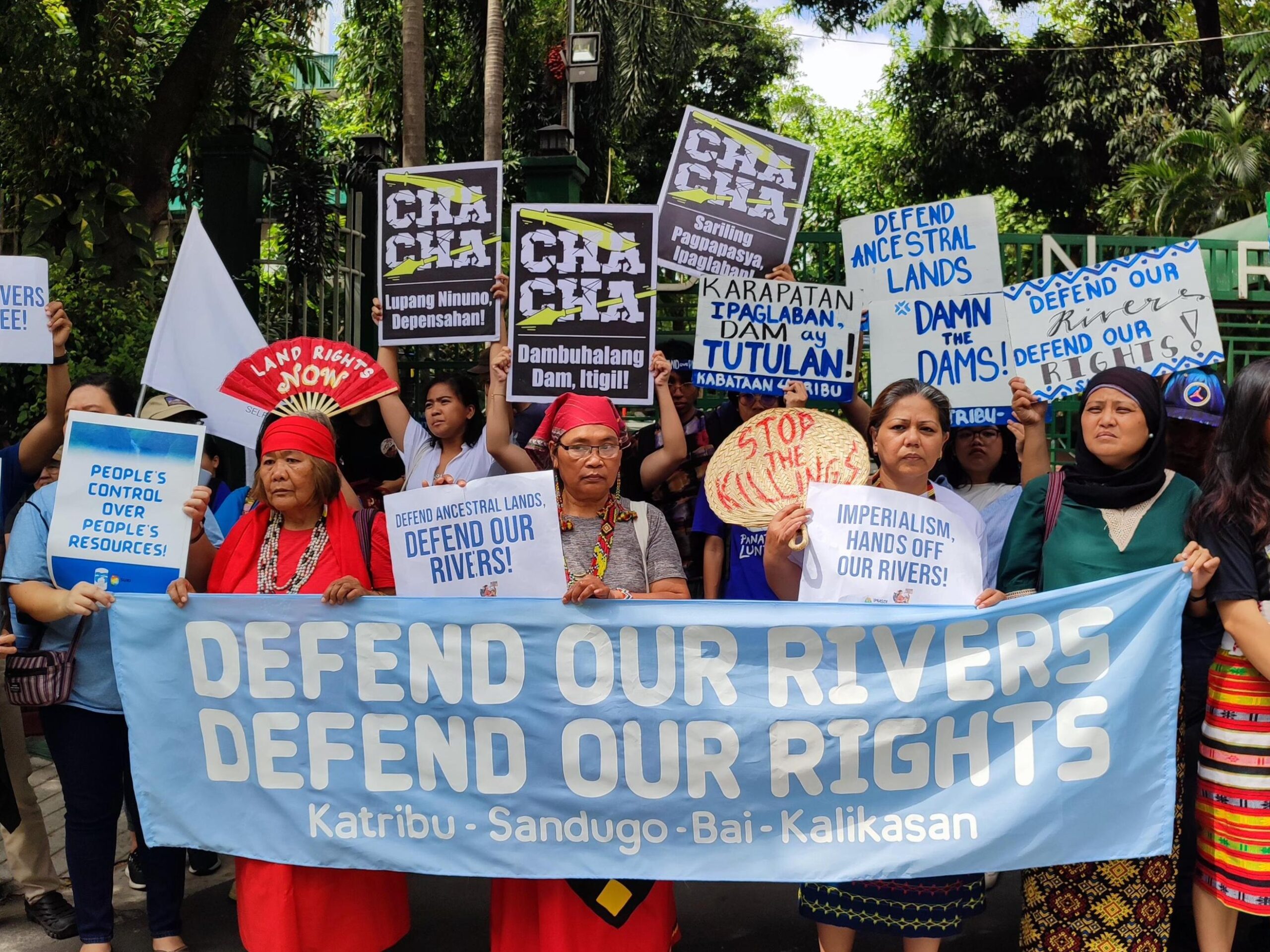On March 14th, people all over the world gathered to protect and celebrate rivers for the 27th annual International Day of Action for Rivers.
This year, we recorded over 110 events in more than 40 countries with thousands of people celebrating their rivers, and uniting against dams, water diversions and pollution in multiple ways. You gathered and protested for the protection of free-flowing rivers, planted native plants along riverbanks, wrote letters to elected officials, took to social media, organized river cleanups, celebrated with music and prayer, held webinars, river walks, writing contests and kayaking events! You showed the world the importance of water for all. This is true from the Mississippi River in the U.S to the Rios Cachoeira do Sucupira in Brazil, Austria and Bulgaria to Iran, from the River Ethiope in Nigeria to the Zambezi River in Mozambique, and across India to Bangladesh, Myanmar and Cambodia to overseas in Japan, the Philippines and Fiji. The remarkable global activity we’ve seen in this year’s Day of Action – the variety, diversity and passion of our movement – continues to inspire. You have made your voices heard – Water is for All!
In a time of immense challenges, we find connection and common cause – across languages, cultures, and borders. We know rivers unite us and water is for all. And we know that we must join together to protect our life-sustaining rivers because they are essential to our health and future on this planet.
The International Day of Action Against Dams and For Rivers, Water and Life was first adopted by the participants of the first international meeting of People Affected by Dams in March 1997 in Curitiba, Brazil. Representatives from 20 countries decided that the annual International Day of Action would take place on March 14 – Brazil’s Day of Action Against Large Dams.
This year witnessed another beautiful and inspiring global celebration of rivers. The diversity of activities and creativity was amazing to see. Photos, articles and stories are still coming in.
Highlights
1) Salween River | THAILAND along the Myanmar border
The Salween River is one of the last free-flowing rivers in Asia. Multiple local groups, youth and partners throughout the Southeast Asia region including International Rivers joined together to call for protecting this critical transboundary river.
For the past two decades, Karen Rivers Watch has led anti-dam campaigns to oppose projects planned for the Salween River, which is vital for the survival of the Karen Indigenous people, especially in light of the proposed Hatgyi Dam Project. Despite agreements signed without community consent by previous leaders, local and Indigenous communities have united in protest against the dam’s construction. The dam project poses a significant threat to Indigenous peoples and the biodiversity of the Salween River Basin. Karen Rivers Watch has tirelessly campaigned against the Hatgyi Dam, engaging with governments, investment firms, and international organizations, and collaborating with Karen civil society groups and local communities to protect the region’s environment and livelihoods.
On this International Day of Action for Rivers, Karen Rivers Watch presents their demands regarding the Salween River dam projects and the future of Myanmar’s rivers. Read the full statement here.
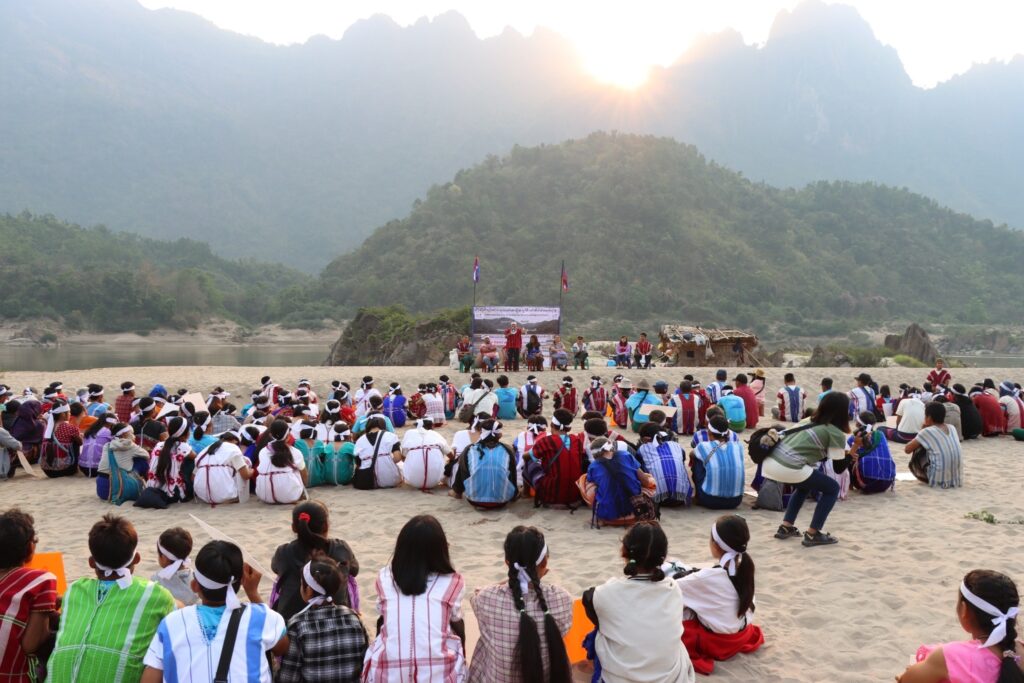
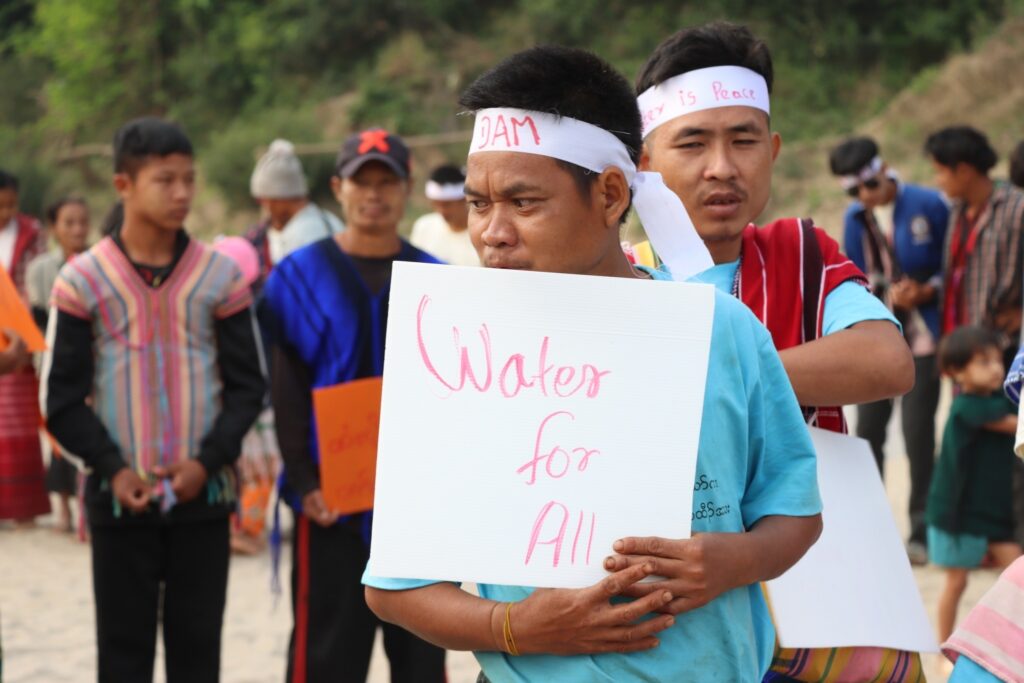
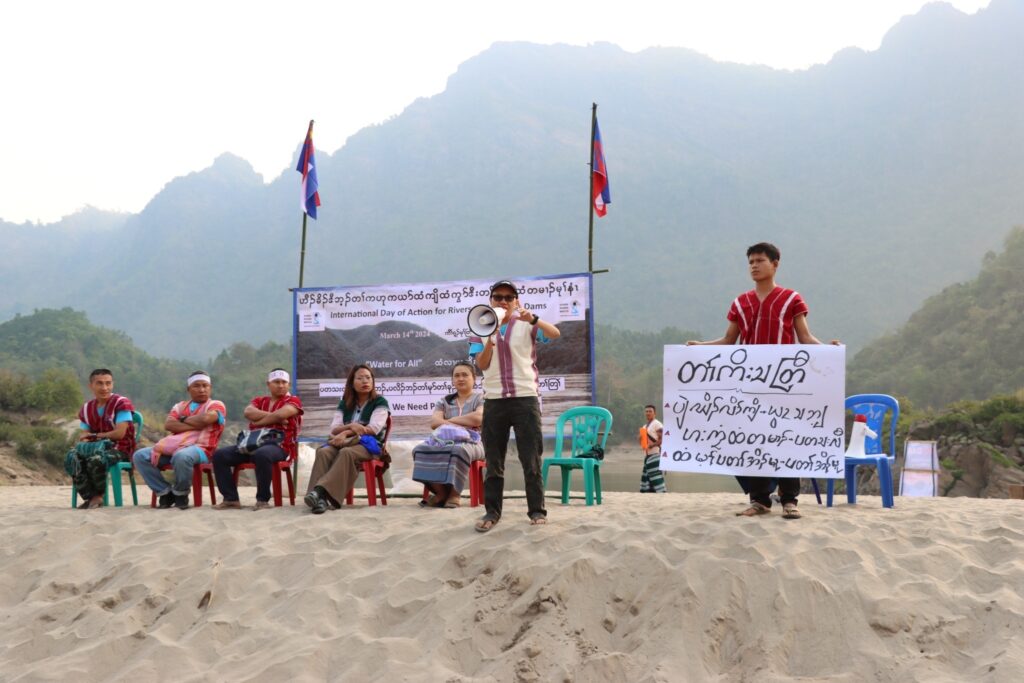
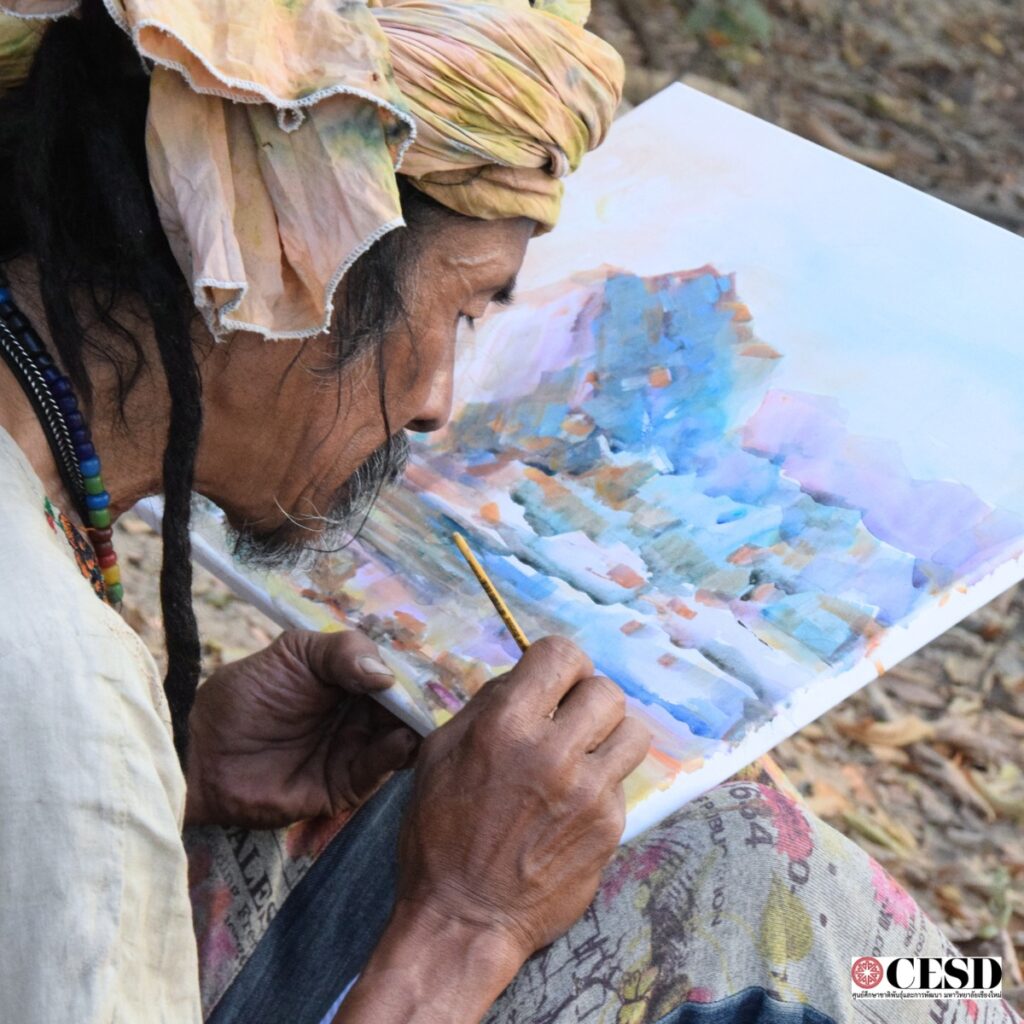
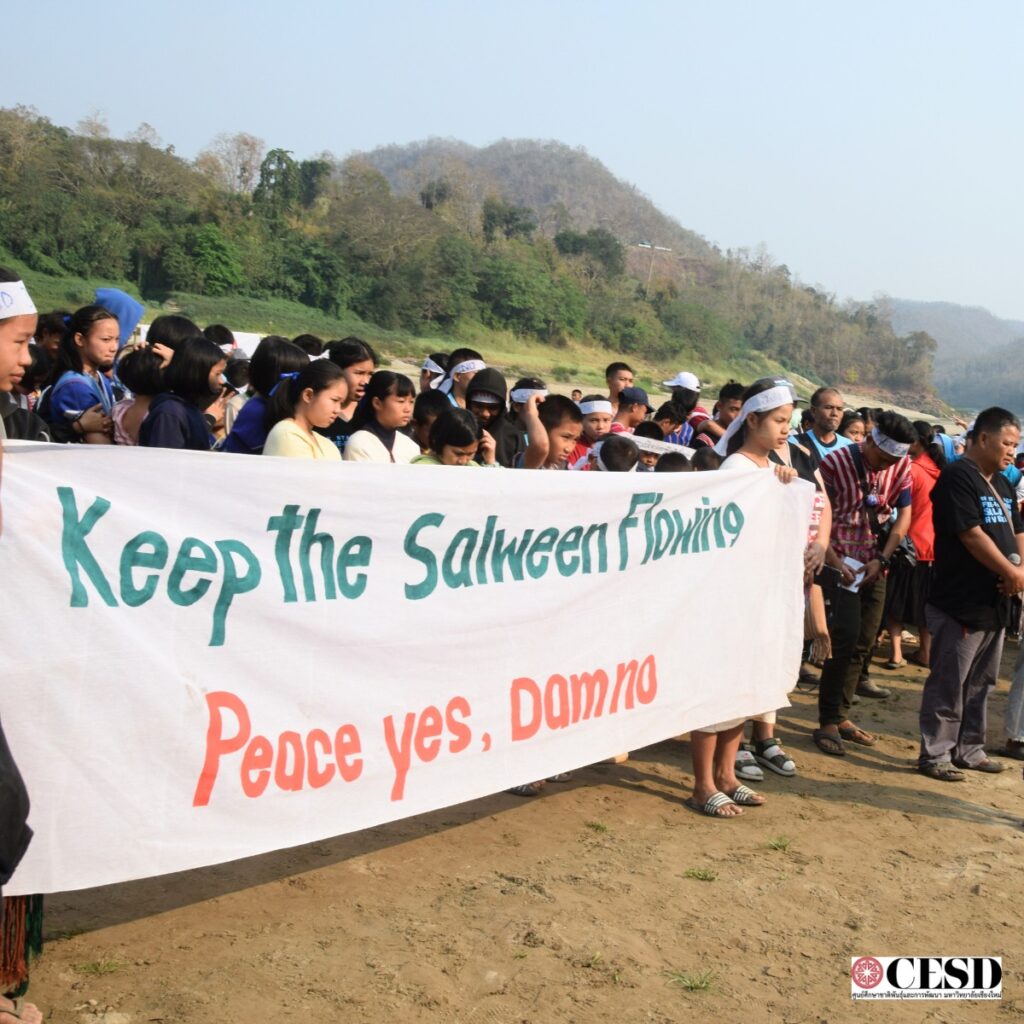
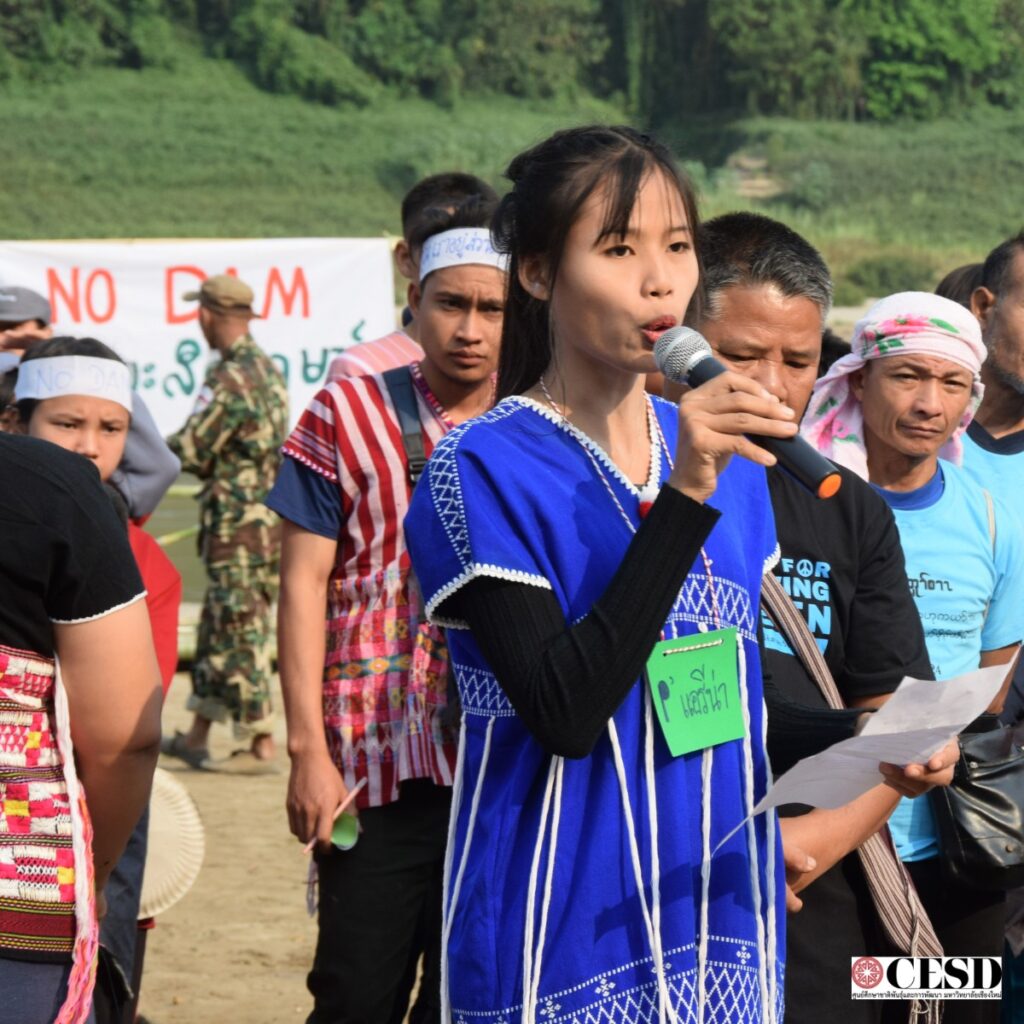
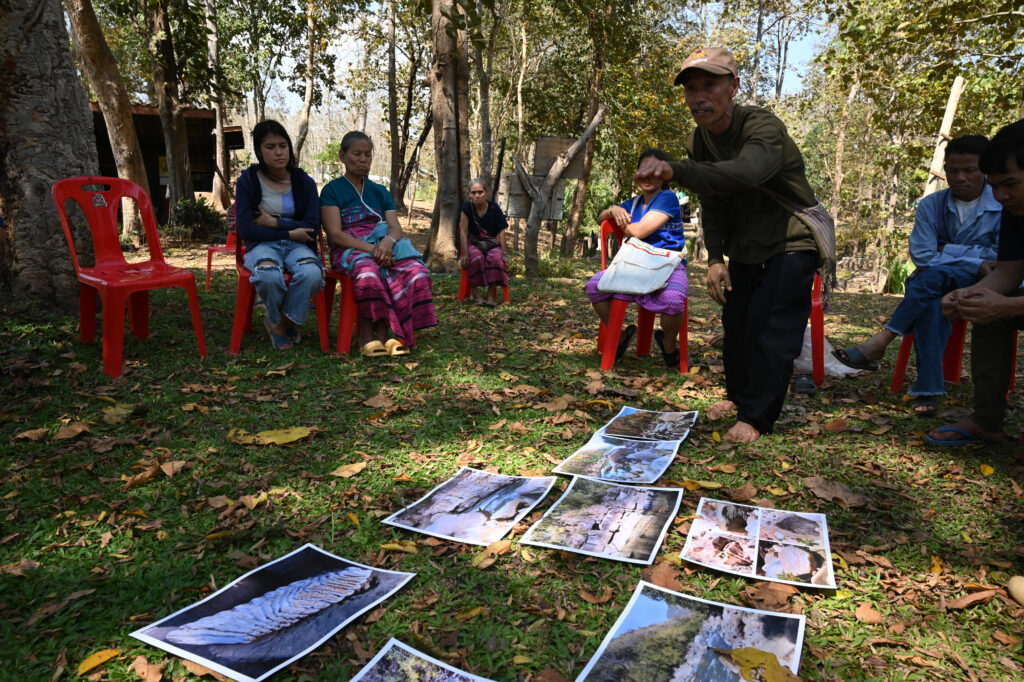
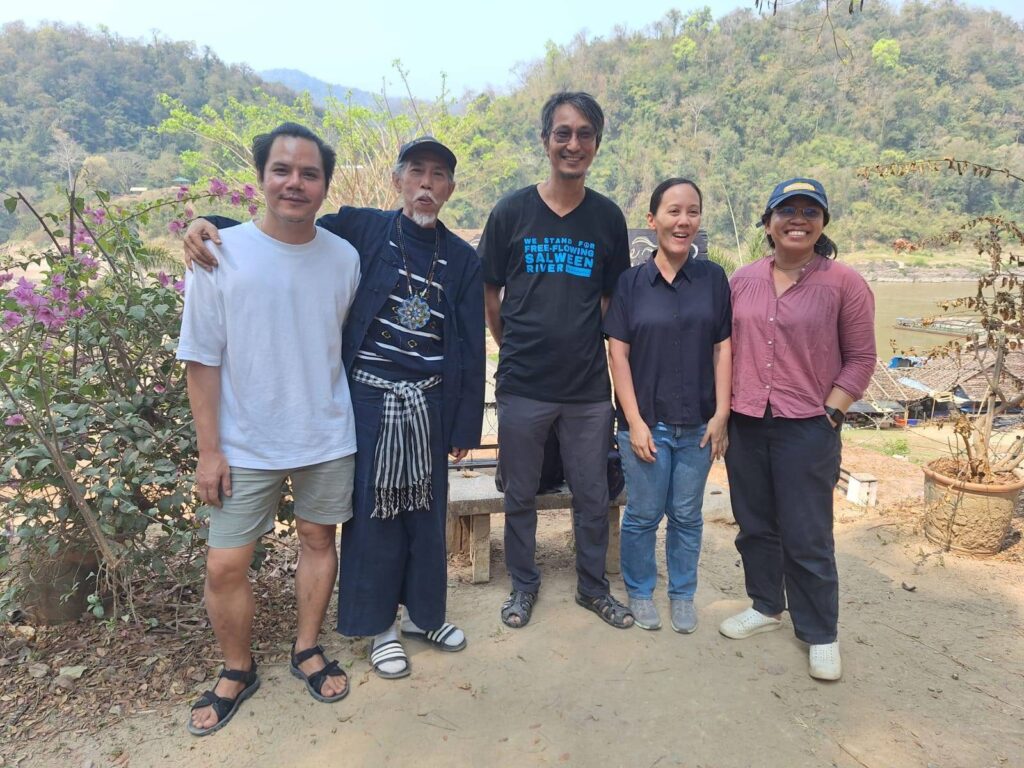
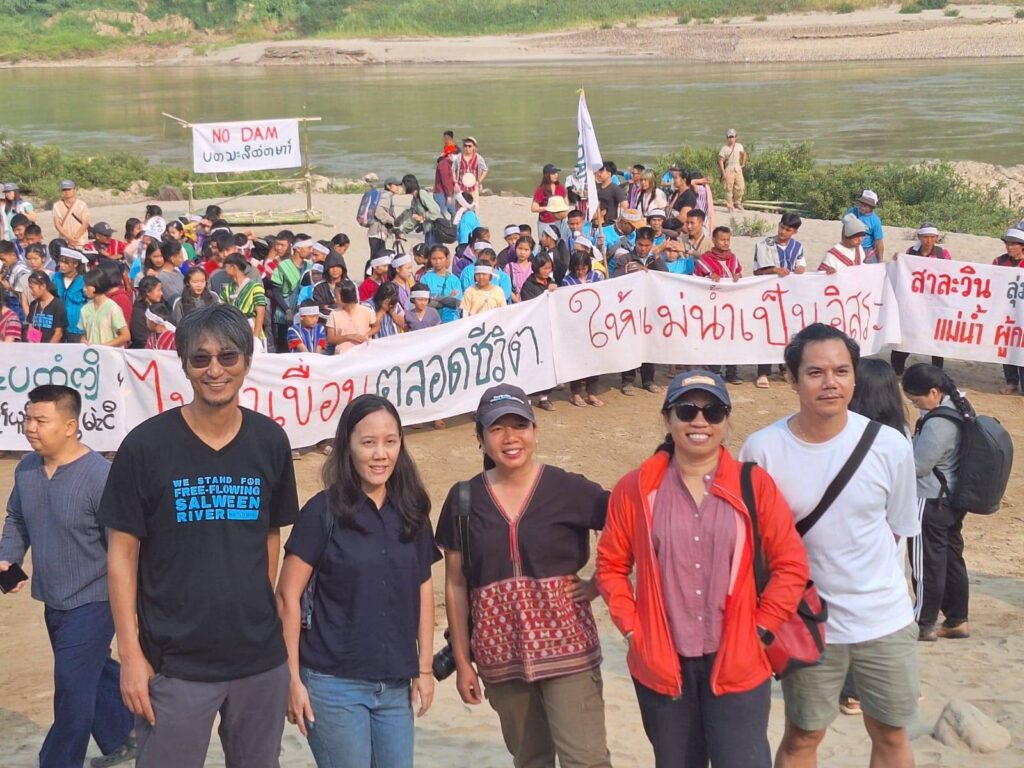
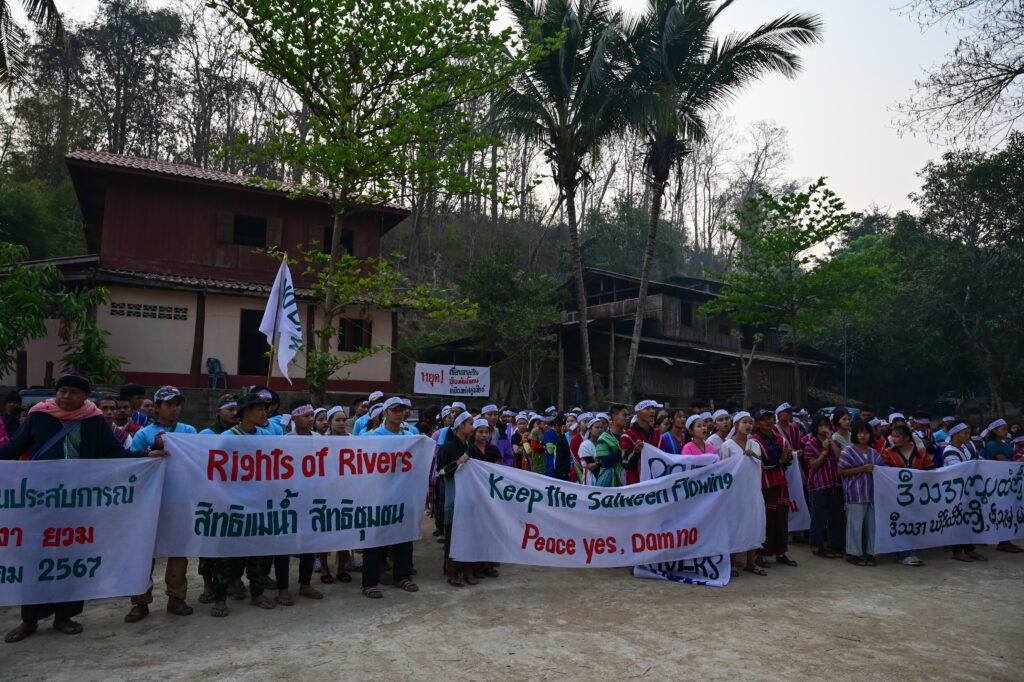
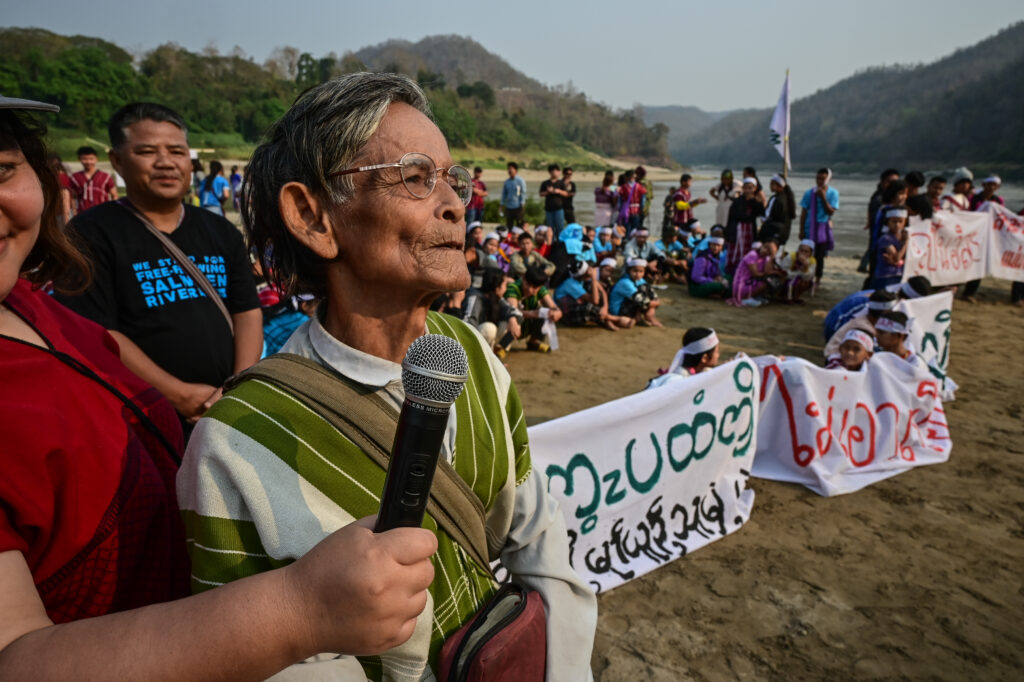
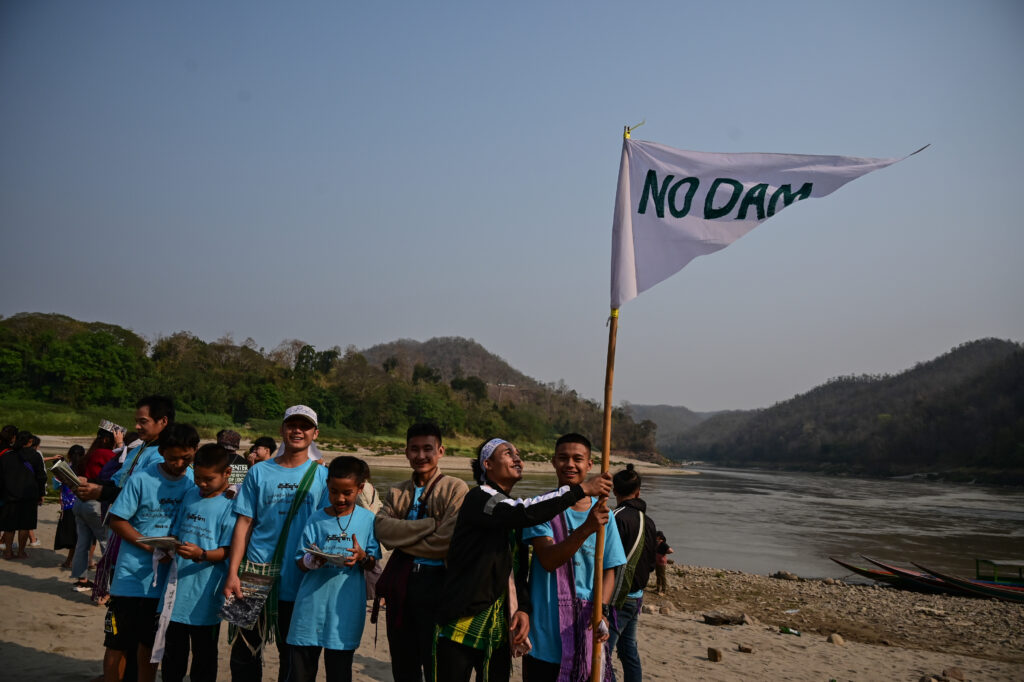
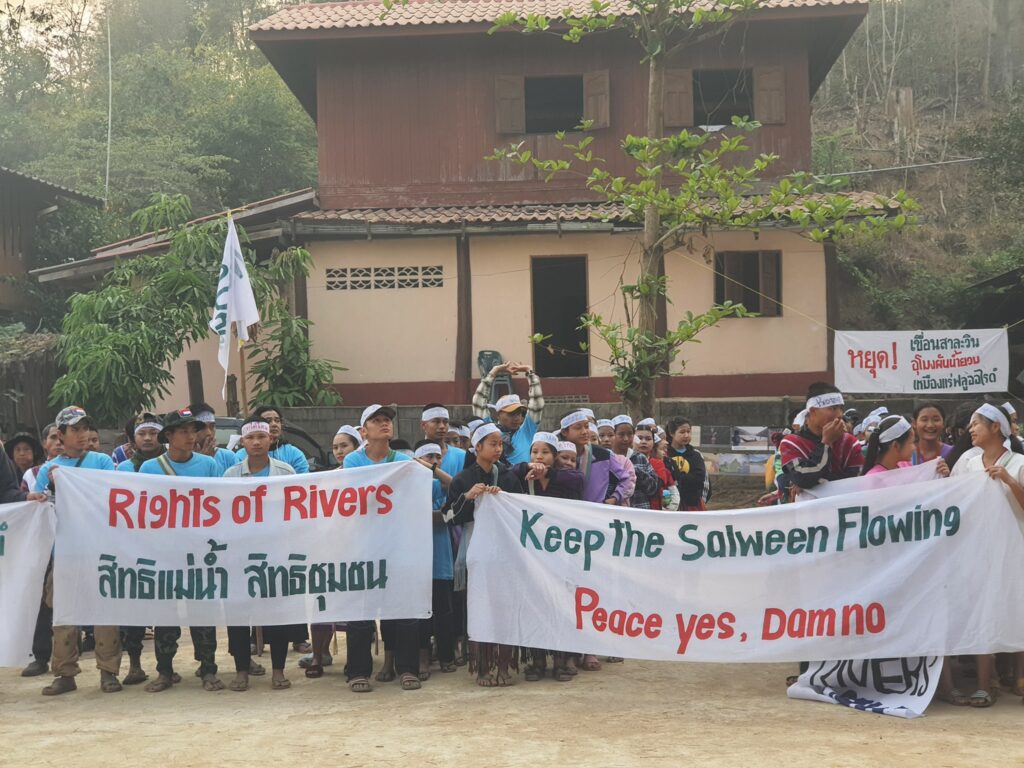
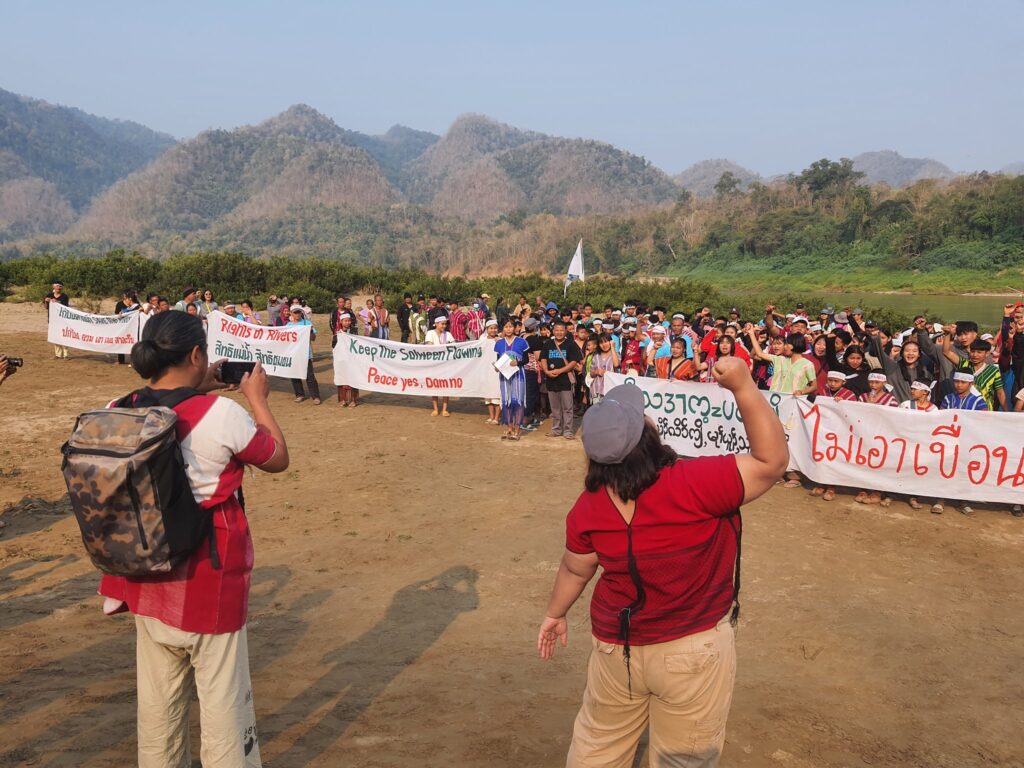
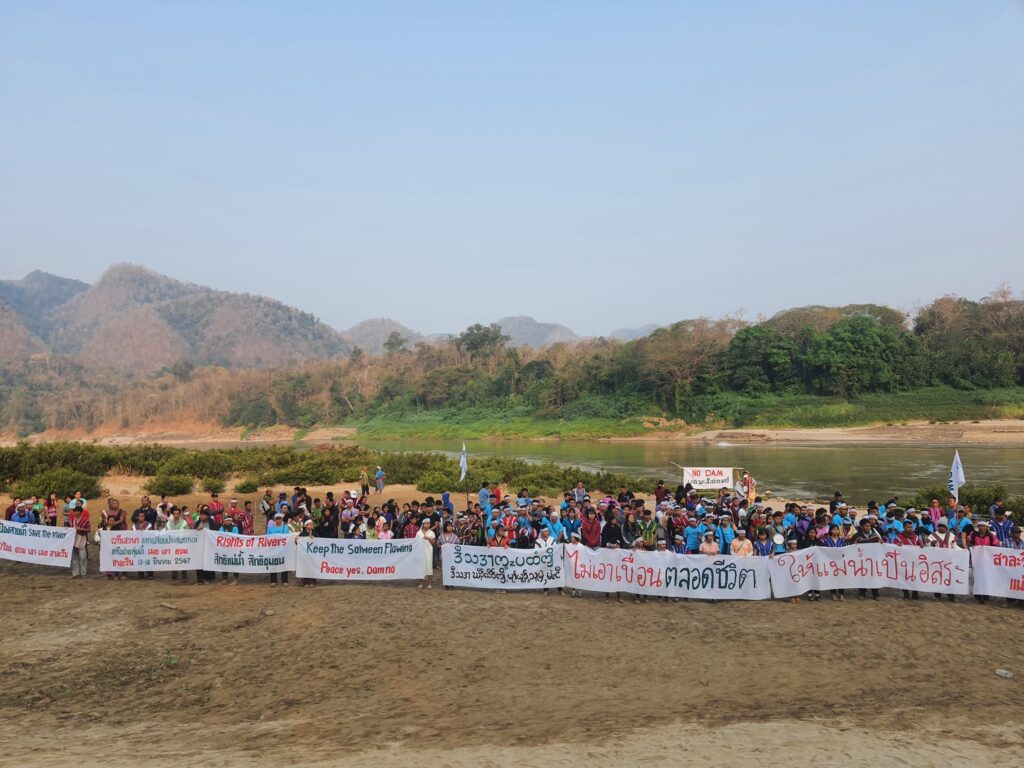
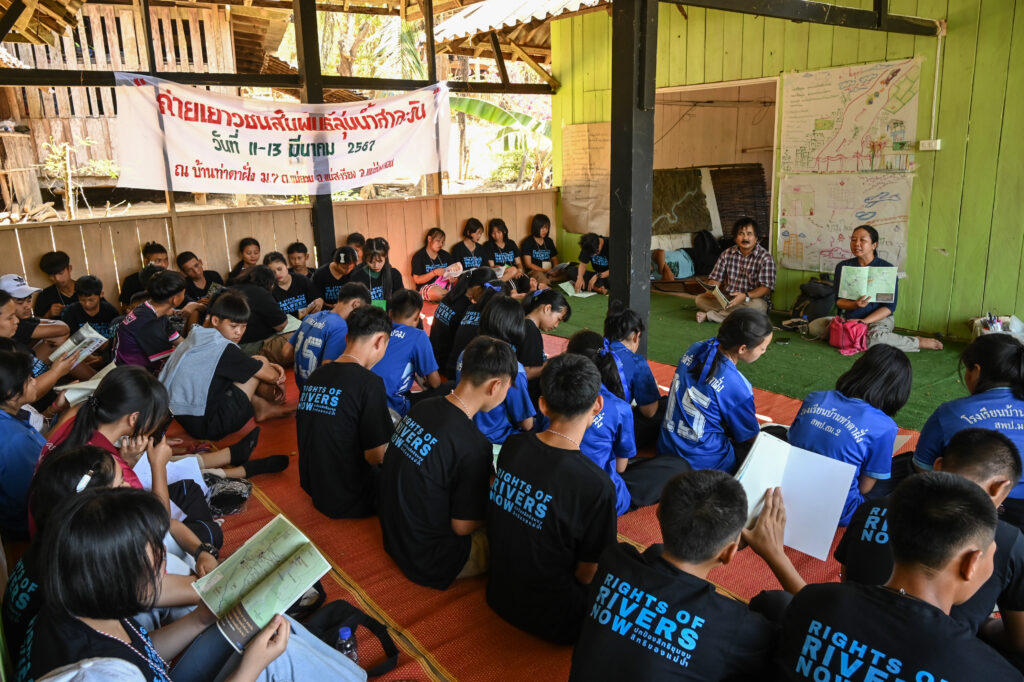
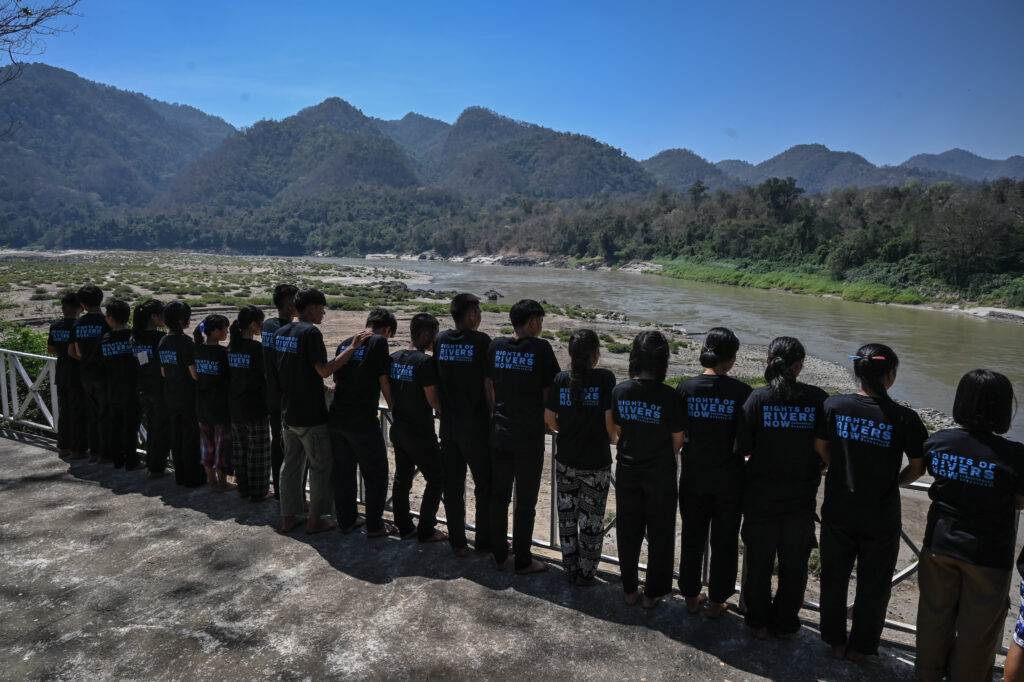
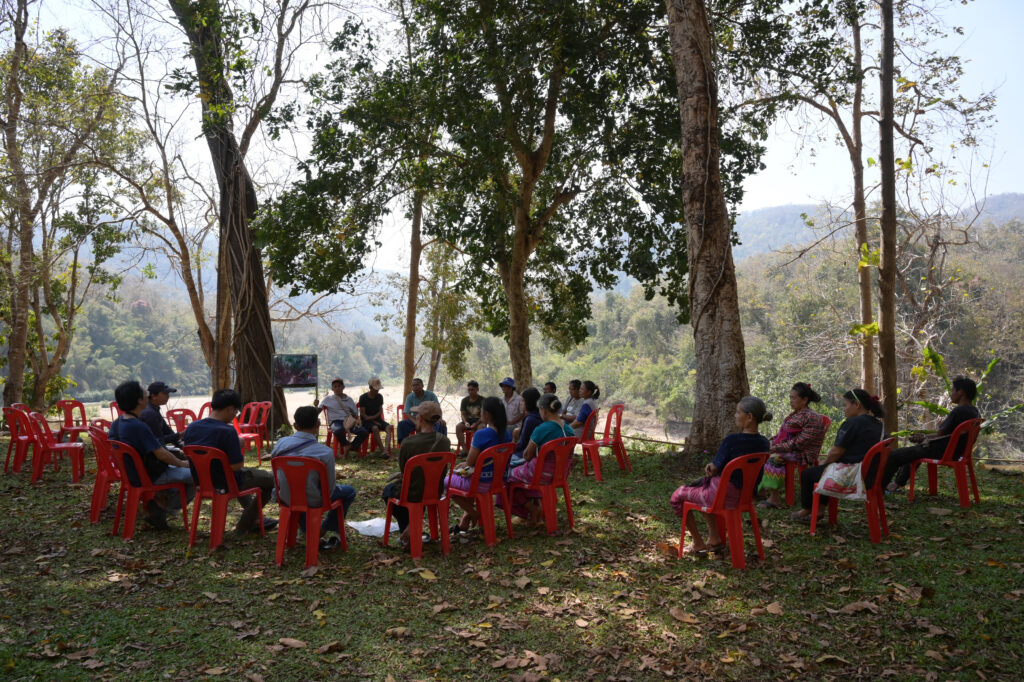
2) Stop the Khlong-Madua Dam! | THAILAND
Photos above and below from Boat Utumporn in coordination with Rak Khao Yai, Nakhon Nayok Provincial Citizens Association, public sector networks and villagers affected by the dam construction project.
Residents and partners opposing the Khlong Maduea Dam Project in the Nakhon Nayok Province of Thailand joined together in calling for a halt to its construction. The dam project has had a public hearing but further information is requested to be gathered, providing an opportunity for affected individuals to voice their concerns and gather facts.
Situated in the Khao Yai UNESCO World Heritage site, and part of a larger scheme by the Royal Irrigation Department to construct dams in forested regions, the project has raised environmental and conservation concerns.
On March 11, a public event, “Save Khlong Madua from dams: Celebrate the International Day of Action for Rivers 2024” was held. A panel discussion, “Stop Destroying Forests to Build Dams” was held with academics, local leaders, NGOs, and other stakeholders. Findings were also shared from a community-based research project exploring local knowledge and the benefits of the Khlong Madua forest. Together, with event participants and members from the public sector network, academics, a team of environmentalists from the Sueb Nakasathien Foundation, the Khao Yai Conservation Group and the Nakhon Nayok Citizens Association, the group read out a statement against the construction of Khlong Madua Dam and other dams in the World Heritage site of Dong Phayayen-Khao Yai.
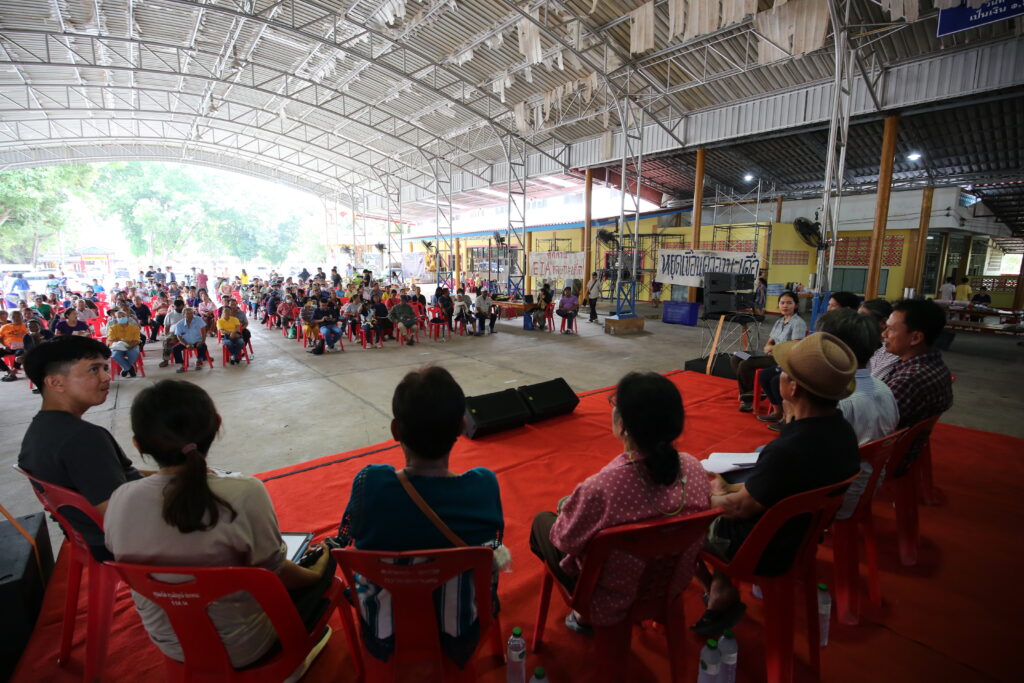
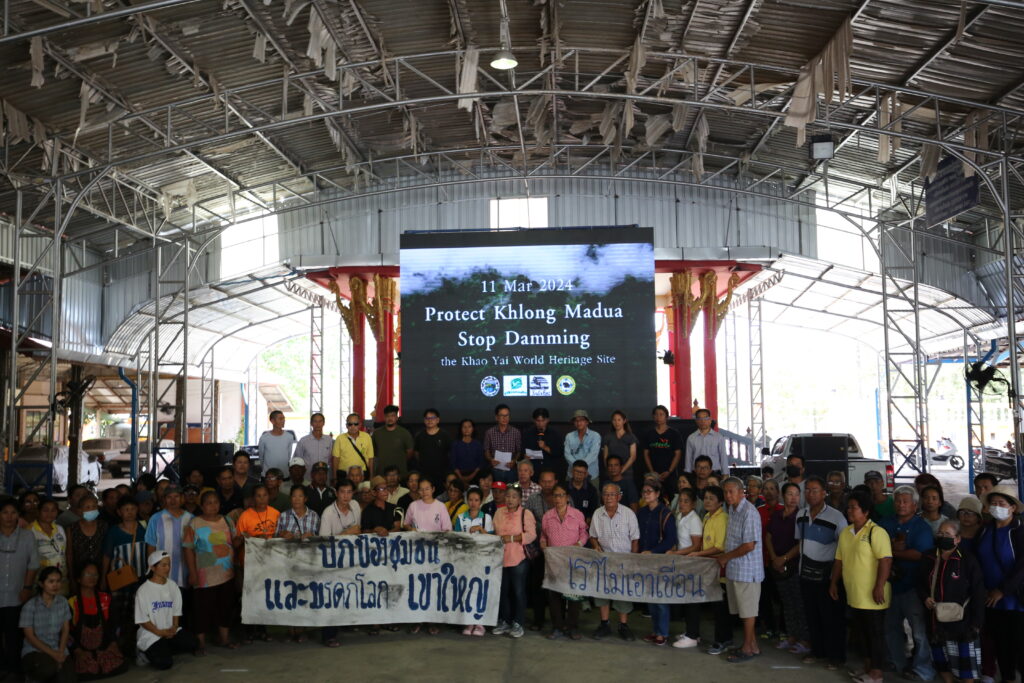
3) Indigenous-led dam protest #NoToMegaDam | Philippines
Indigenous Peoples and environmental advocates marked the International Day of Action for Rivers and Against Large Dams with a protest outside the Department of Environment and Natural Resources in Quezon City, Philippines, denouncing the construction of destructive dam projects detrimental to ecosystems, human rights, livelihoods, and cultures. Multiple organizations coordinated and led this effort including Katribu, the International Indigenous Peoples Movement for Self Determination and Liberation (IPMSDL) and the Bai Indigenous Women’s Network.
The proposed GENED Hydroelectric Power Project in Apayao and the Kaliwa Dam project affecting Dumagat-Remontado communities in Rizal and Quezon affect hundreds of thousands of people and endanger over 100 species. Protesters emphasized the adverse impacts on biodiversity and Indigenous communities. The event held the Philippine government and corporations accountable for violating Free, Prior, and Informed Consent processes, with instances of violence against vocal opposition, and rejected proposals like Marcos Jr.’s Charter Change aiming to open Indigenous lands to foreign ownership. The protest concluded with a call for solidarity in defending rivers, ancestral lands, and the rights of Indigenous communities amidst ongoing challenges. Additionally, an online discussion hosted by Kalikasan Timog Katagalugan aimed to further delve into these urgent issues.
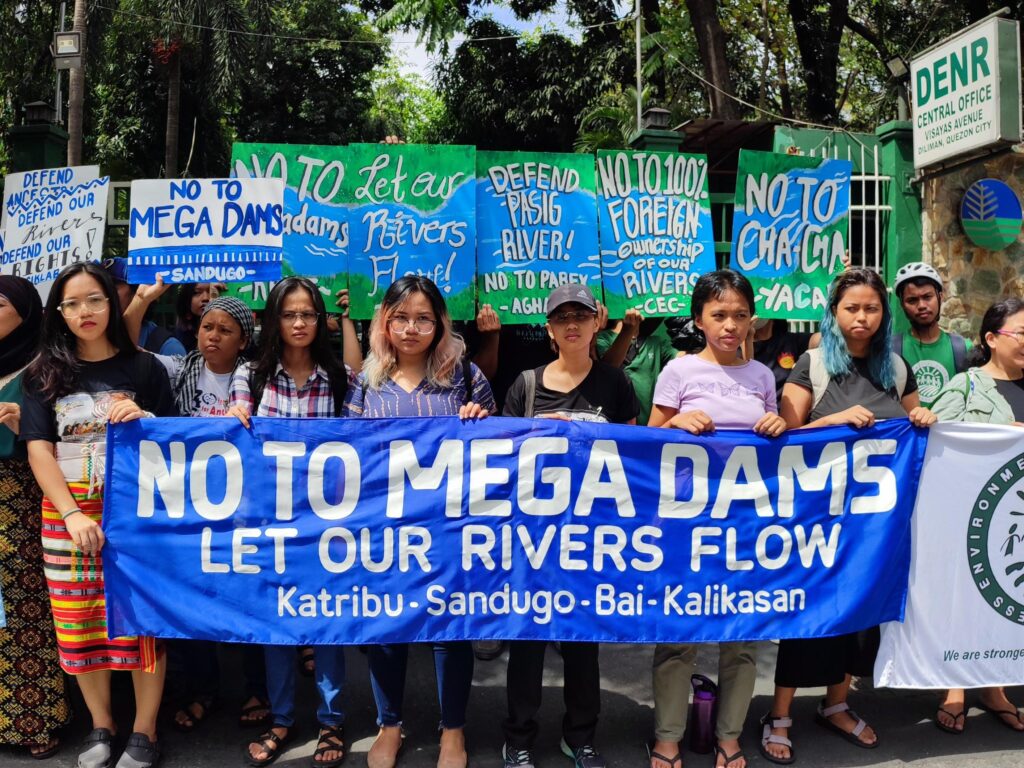
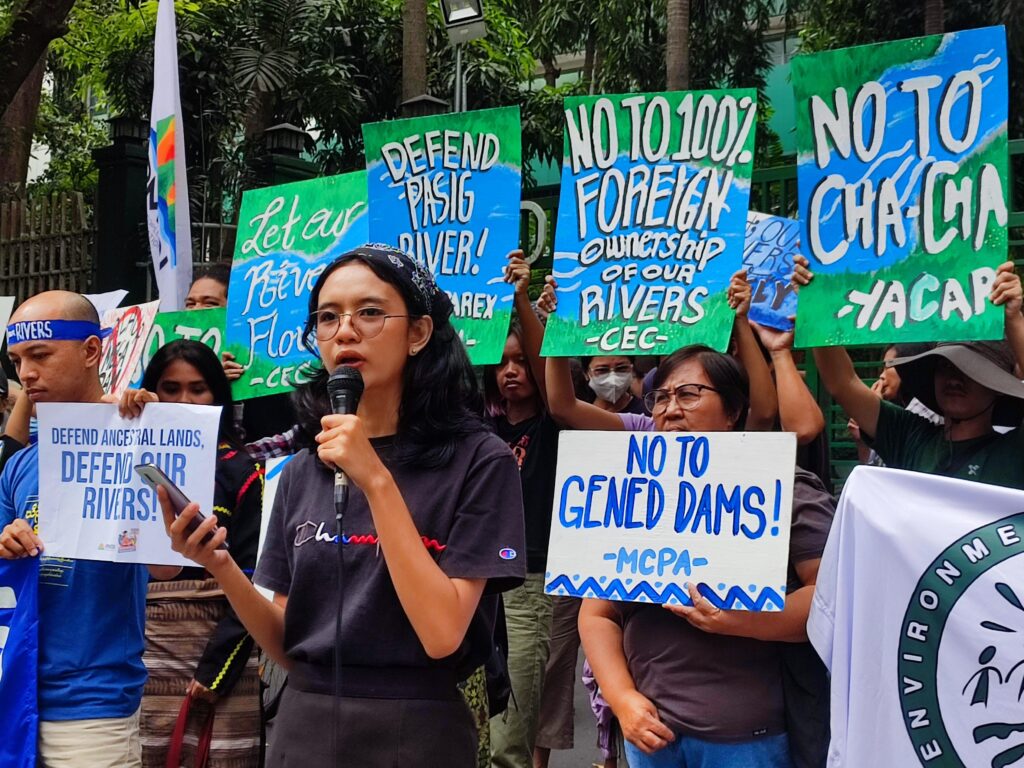
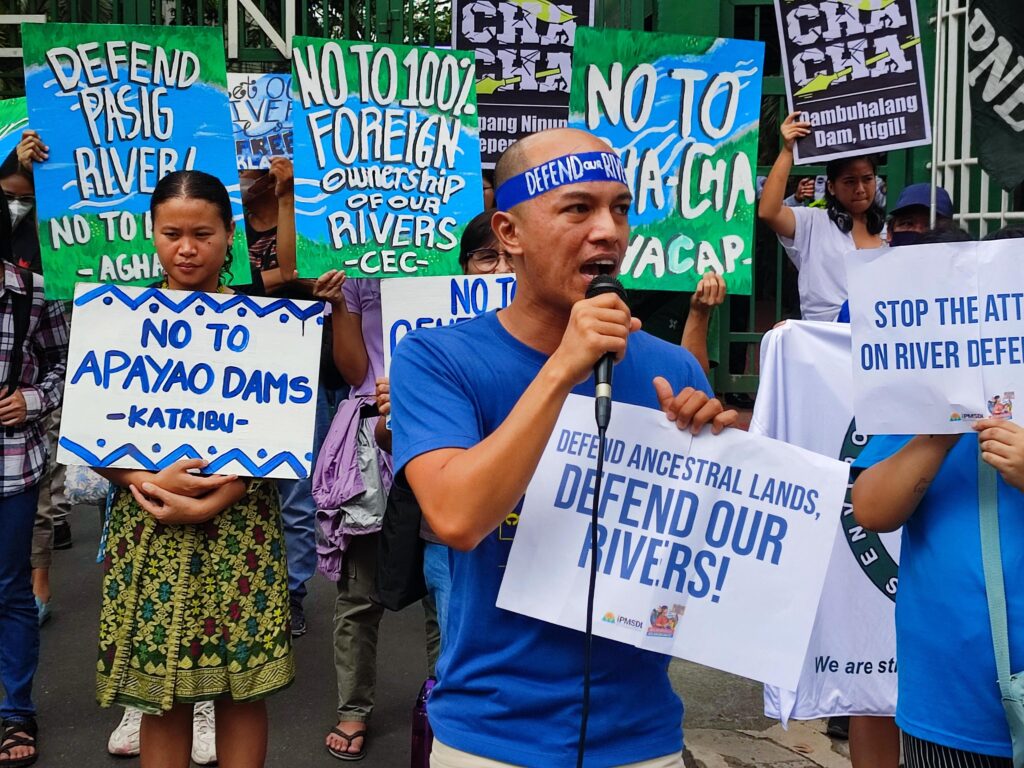
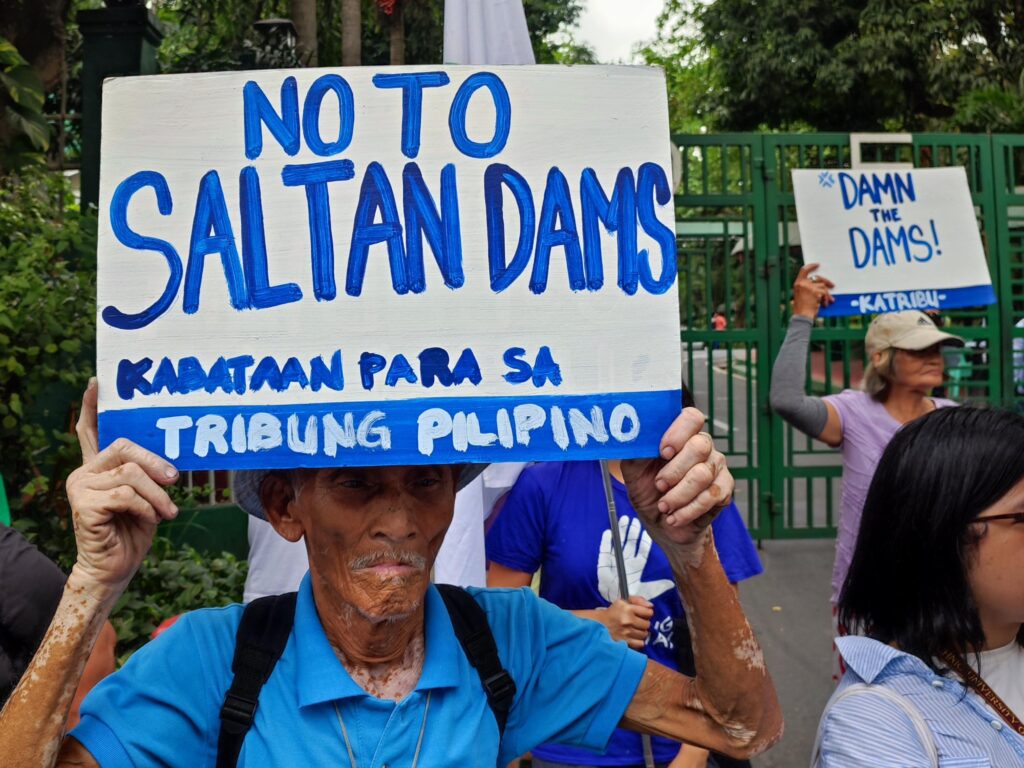
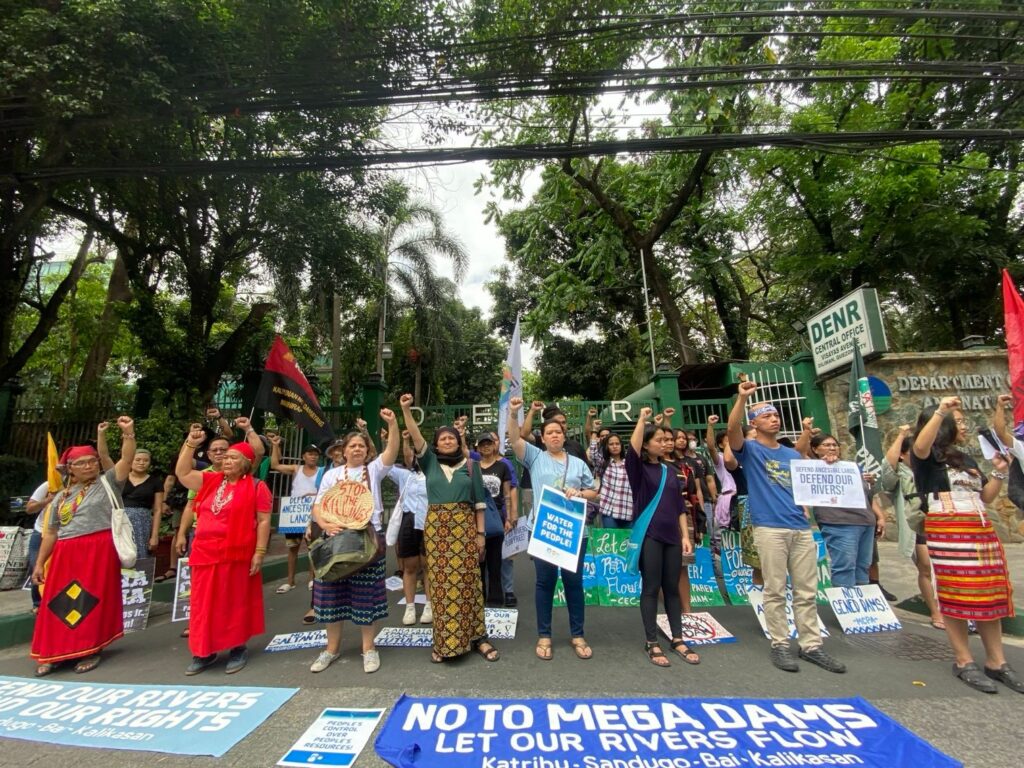
4) Congo River – CORAP and partners | Democratic Republic of the Congo
Environmental rights defenders and actors of civil society convened by the Coalition of Civil Society Organizations for Monitoring Reforms and Public Action (CORAP), gathered on Day of Action under the theme “Water for All.” With over 100 attendees, the event discussions centered on the need for government enforcement of laws to safeguard rivers and address issues such as flooding, emphasizing the crucial role of civil society in advocating for environmental rights. The event included a trip on the Congo River and interactions with water sector experts, NGOs, and local communities, underscoring the significance of collaborative efforts in river conservation and management. Find more info here and find the day’s declaration from the environmental defenders here.
Photos below from Civil Society Organizations for Monitoring Reforms and Public Action (CORAP):
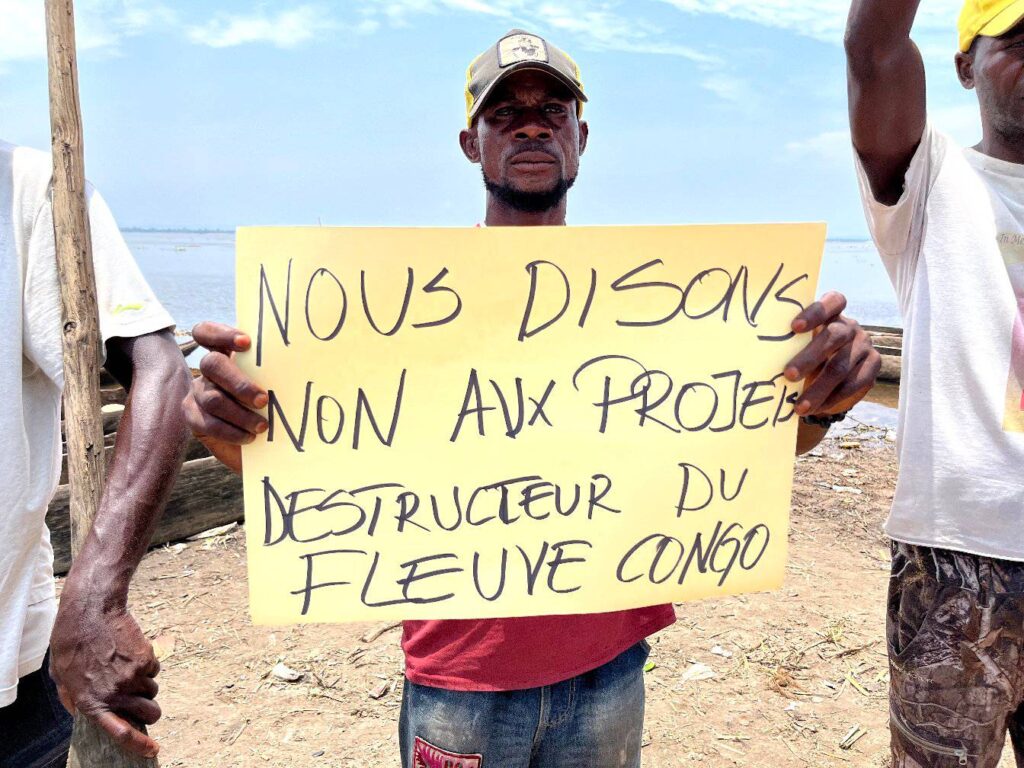
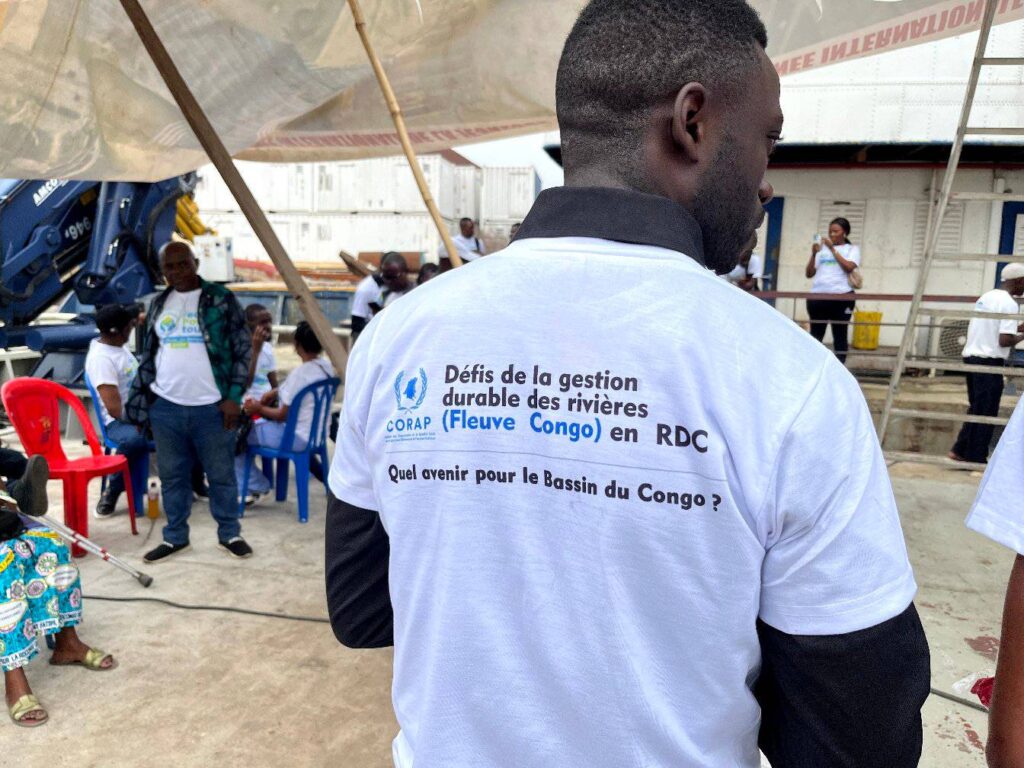
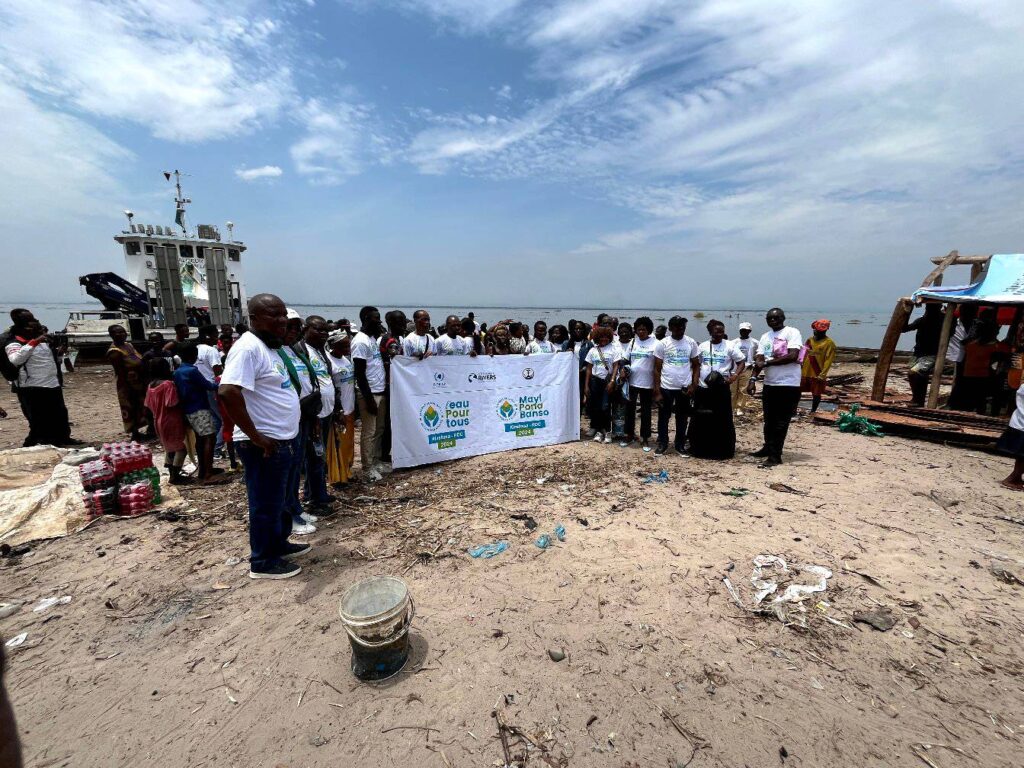
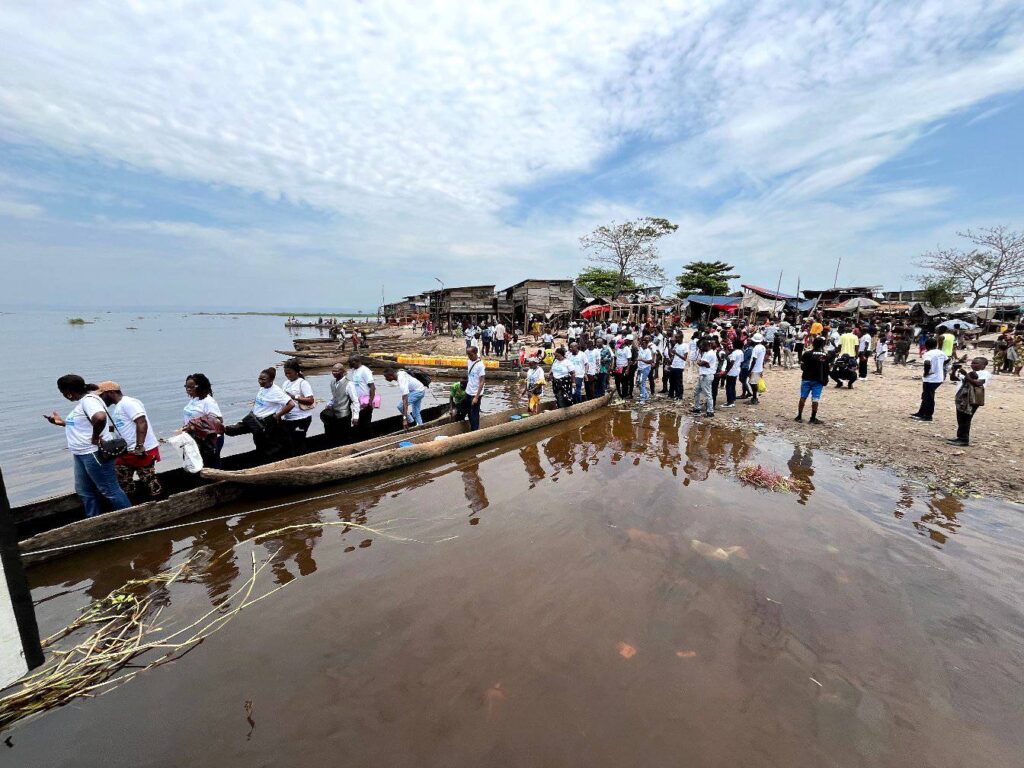
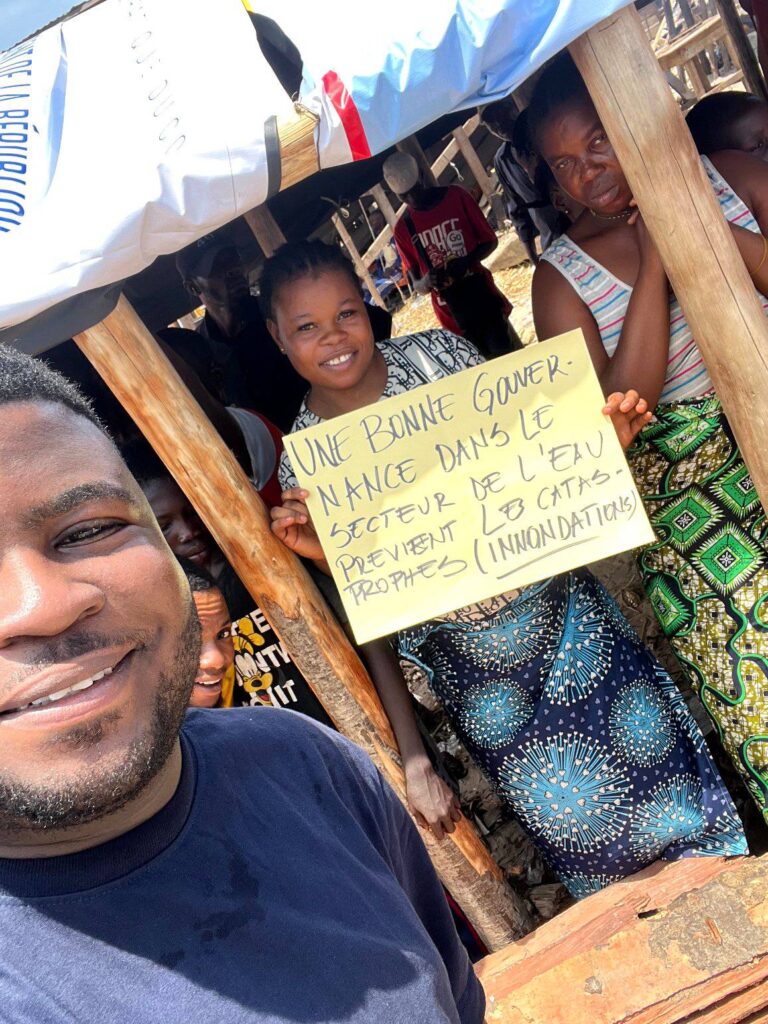
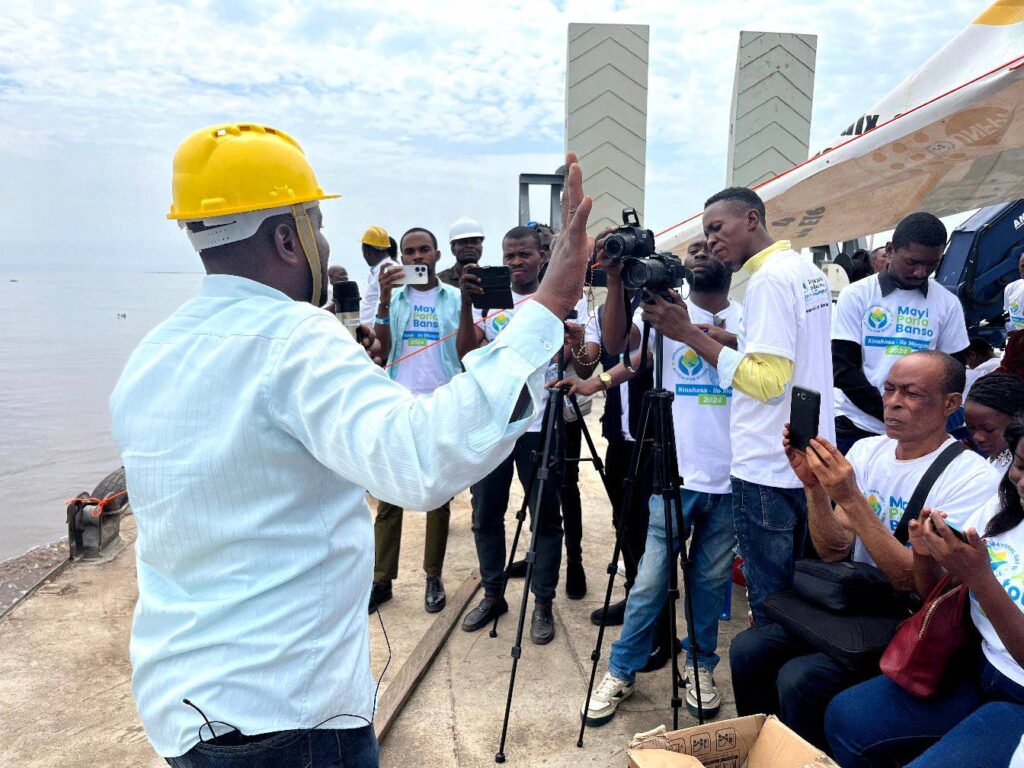
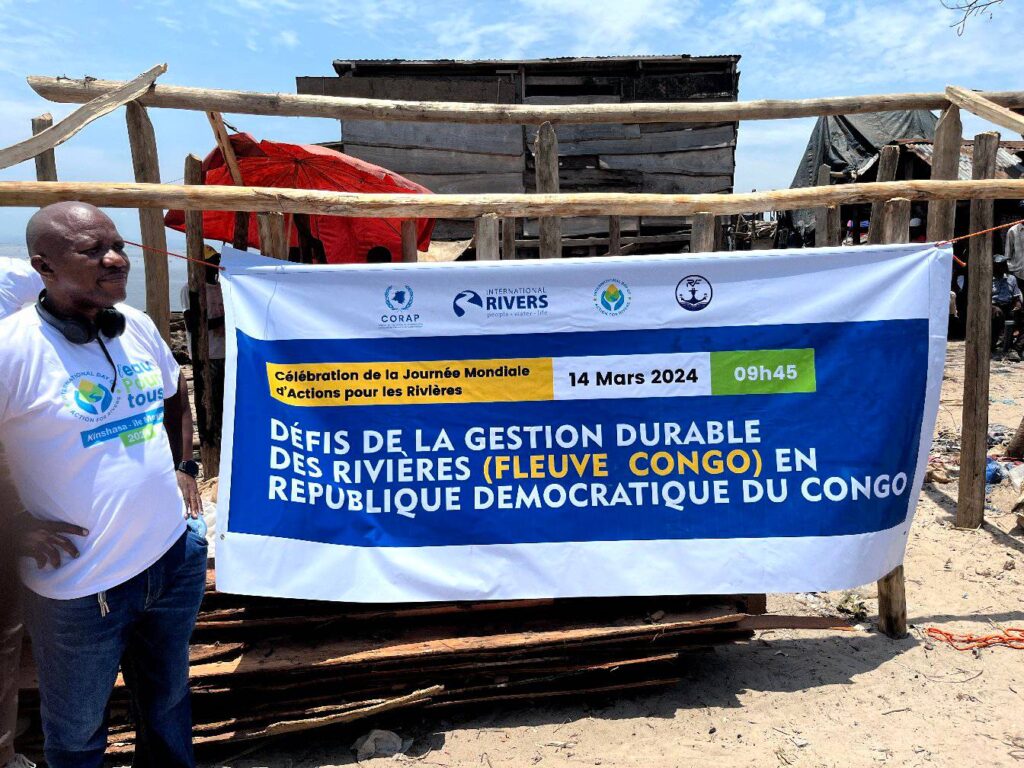
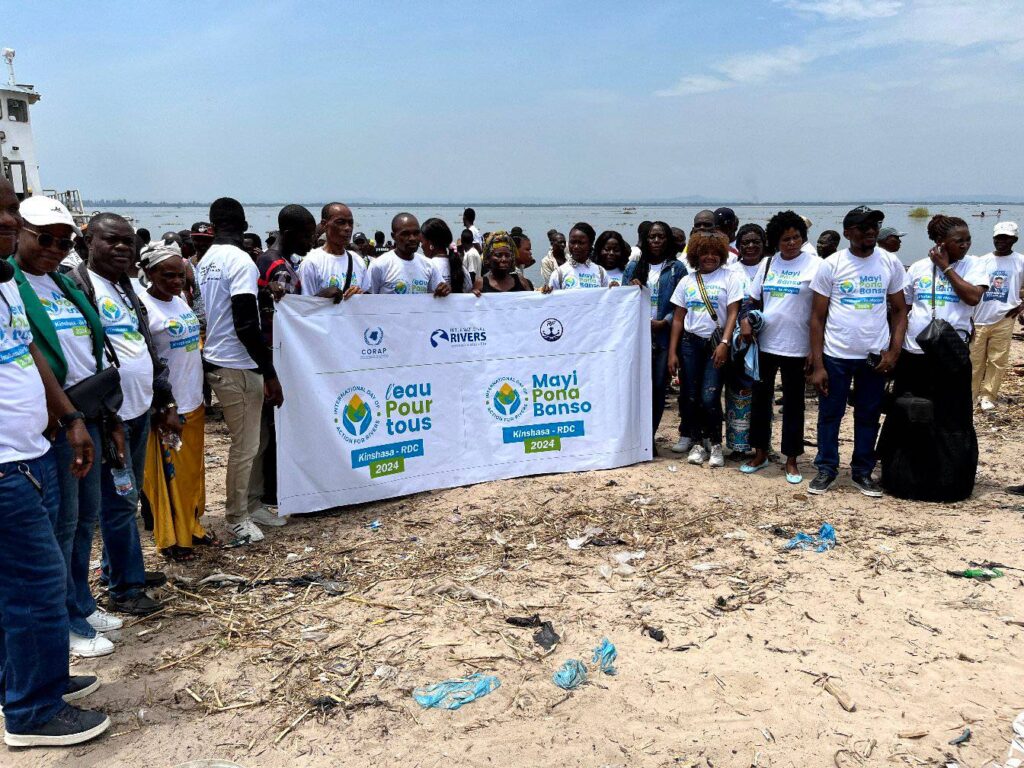
5) Loktak fishers clean-up drive | India
To commemorate International Day of Action for Rivers, Loktak fishers conducted a cleaning drive along waterways connecting the lake shore, removing invasive weeds from Loktak Lake, and contributing to the global campaign for freshwater aquatic ecosystem restoration. Organized by the All Loktak Lake Areas Fishers Union, Manipur (ALLAFUM), the initiative aimed to address the choking of the wetland caused by the uncontrolled spread of invasive species. Their efforts were reported in local media.
6) Stop the Rogun Mega Dam | Tajikistan
A coalition of international and local civil society organizations, including International Rivers, Rivers without Boundaries and Coalition for Human Rights in Development, jointly issued an appeal to the World Bank and 15 other financiers known as the “Rogun Coordination Group,” expressing deep concerns about the construction of the Rogun dam in Tajikistan.
The appeal highlights deficiencies in the Environmental and Social Impact Assessment (ESIA), pointing out its limited scope, low quality, and omission of key potential impacts. Furthermore, The Rogun project, situated on the Vakhsh River, not only poses a concern for Tajikistan but also for the entire region due to potential geopolitical tensions and transboundary water management issues, which could affect neighboring countries Afghanistan, Turkmenistan, and Uzbekistan. The appeal calls for the redoing of the ESIA, with new Terms of Reference (ToR) subject to consultation with interested stakeholders and riparian countries. Urging financiers to consider these concerns immediately, especially concerning pending decisions on financing for the Rogun Hydropower Project, the coalition emphasizes the importance of transparent and inclusive decision-making processes involving all stakeholders in large-scale development projects like the Rogun dam. Read the full article and appeal statement here.
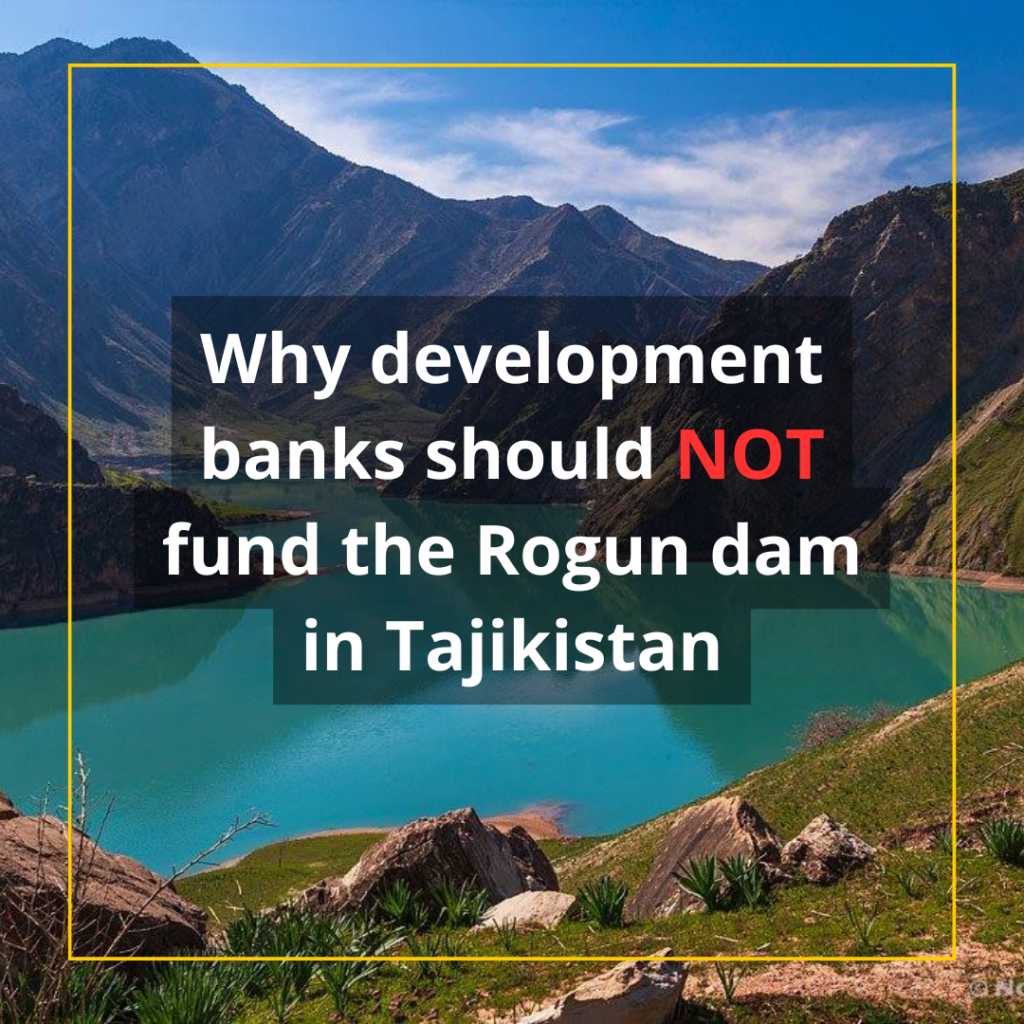





7) Save the Mekong River | Cambodia and Thailand
The Mekong River is the largest freshwater fishery and the second most biodiverse river in the world and supports the lives and livelihoods of over 65 million people.
Communities throughout the river basin organized events calling for better protection, halting dams and celebrating the river. Communities in multiple provinces also held events including Kratie and Stung Treng in northern Cambodia and Loei, Ubon and Bangkok in Thailand.
International Rivers’ Pai Deetes spoke on the panel, “Upping the game in Mekong: Improving accountability and transparency in Asia’s mightiest river basin at the Foreign Correspondents’ Club in Thailand. Watch it here.
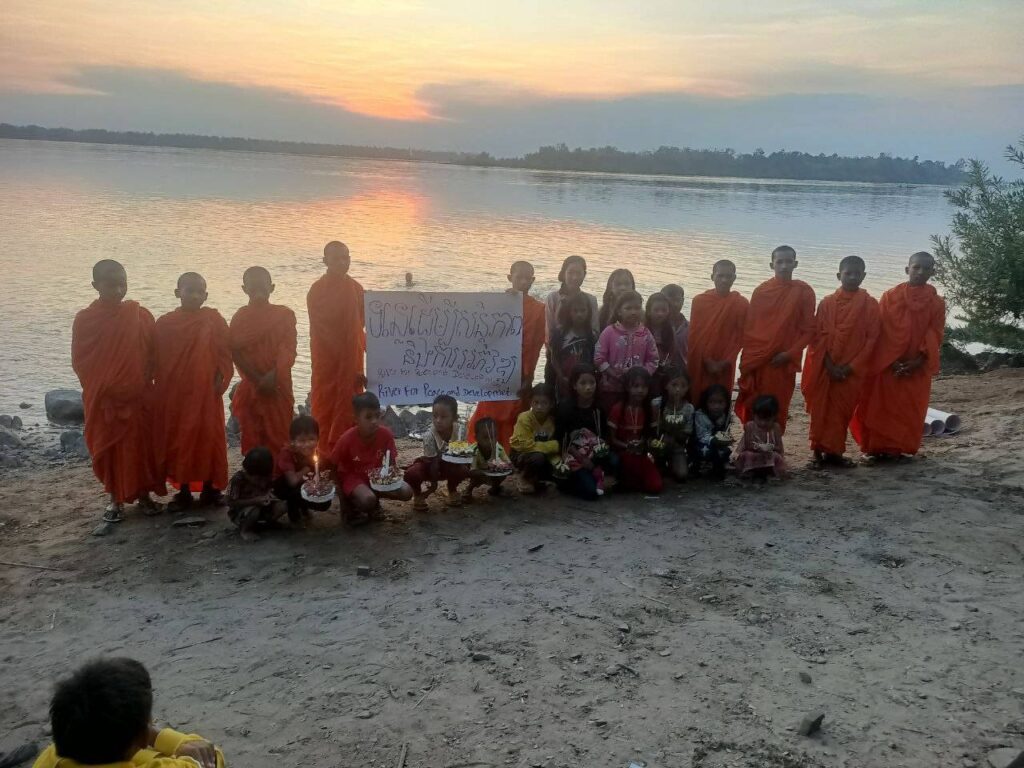

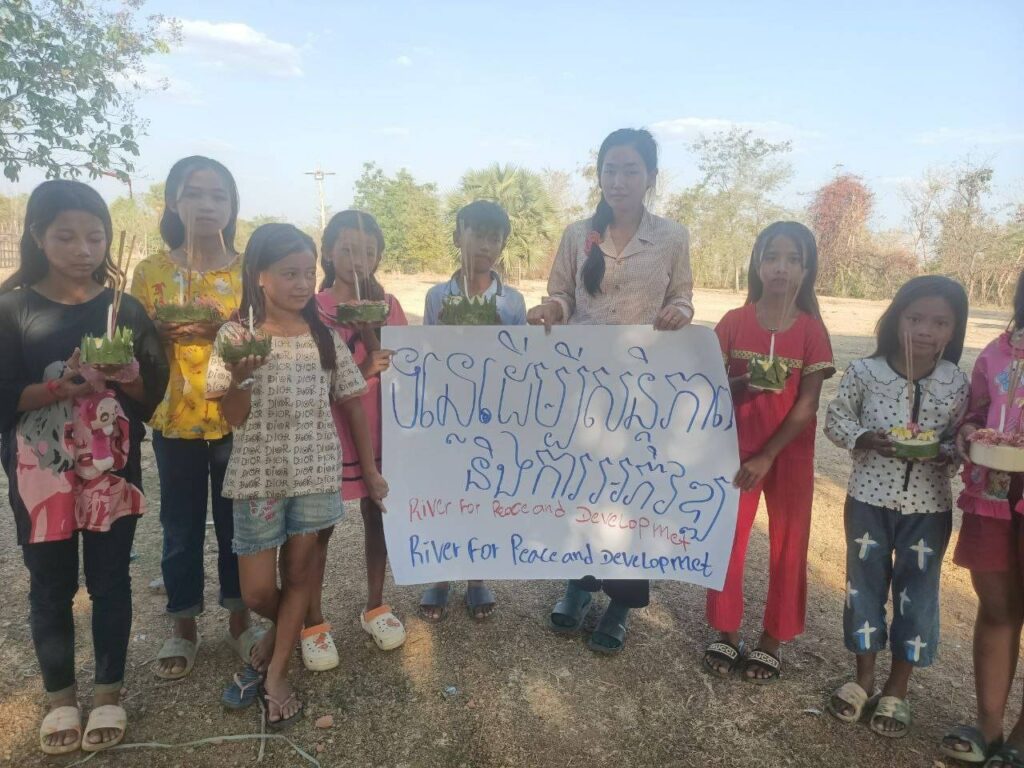
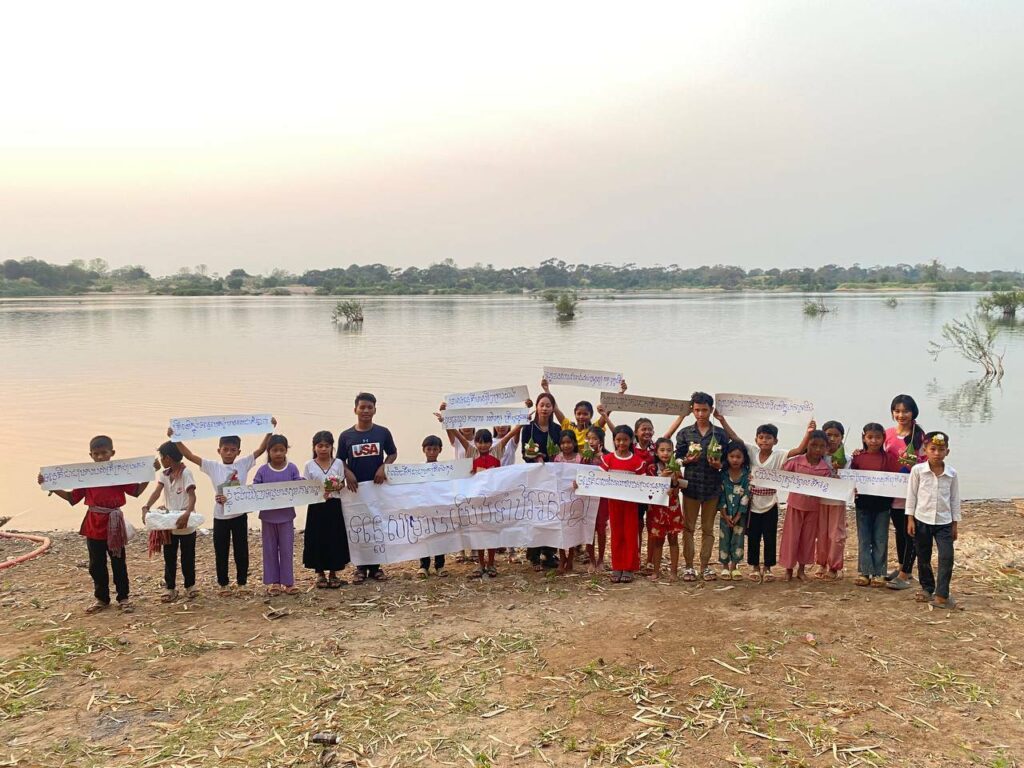
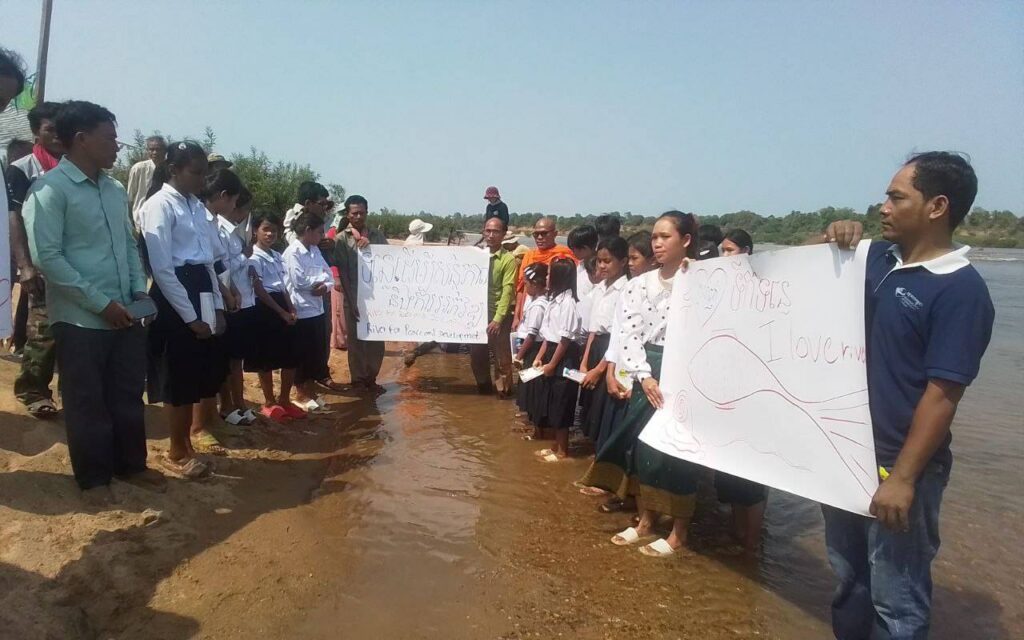
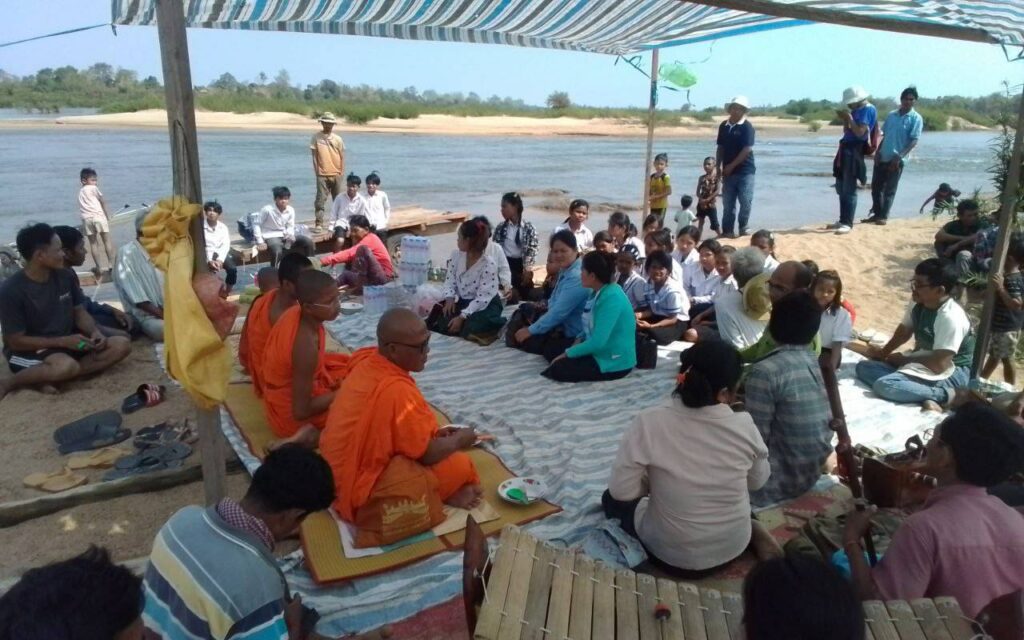
8) Tibet Policy Institute Panel on Dams | India
The International Tibet Network hosted a panel discussion in Dharamshala, India, on the adverse social, cultural, and ecological impacts of a dam in Dege, Tibet, as part of the International Day of Action for Rivers. The event examined the consequences of the dam not only for Tibetans but also for broader ecological systems beyond the region.
9) Rios Livres, Uberlândia | Brazil
In Brazil, the Association for Social and Environmental Management (ANGA) of the Triângulo Mineiro organized a Rios Livres event in defense of the waters of the triangle in Uberlândia, Minas Gerais. It was a resounding success in advocating for the protection of water resources. Held at the stunning Sucupira Waterfall on March 14th, participants engaged in a waste collection event while discussing the critical role rivers play in biodiversity and water supply. The event emphasized the importance of collective action in preserving our rivers for future generations.
10) Movimento dos Atingidos por Barragen (MAB) | Brasil
This year, Movimento dos Atingidos por Barragen (MAB) mobilized in 9 Brazilian states to call for a National Policy for the Rights of Populations Affected by Dams. Groups also denounced the impunity of the mining companies responsible for the country’s greatest environmental tragedies, such as the companies Vale and Braskem.
MAB is one of the oldest and most developed grassroots organizations in Brazil. An organization that was born in 1989 in the heat of the resistance of riverside populations that were being displaced by dams in the states of São Paulo, Bahía, Pernambuco, Pará and Rio Grande do Sul, among other centers throughout Brazil, which held the first National Congress of People Affected by Dams that year. That Congress defined that the MAB would be a “national, popular and autonomous movement, with the task of organizing and articulating actions against dams based on local realities.” Read more about MAB’s activities on this day and the history of the global movement for rivers and against dams. Credit: Photos below from MAB
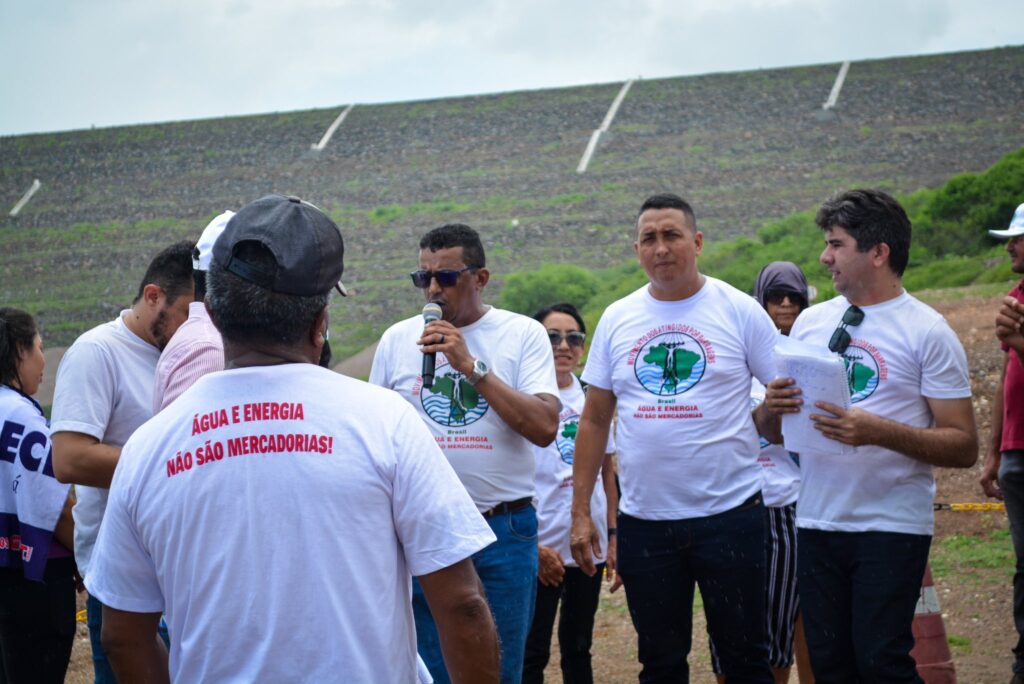
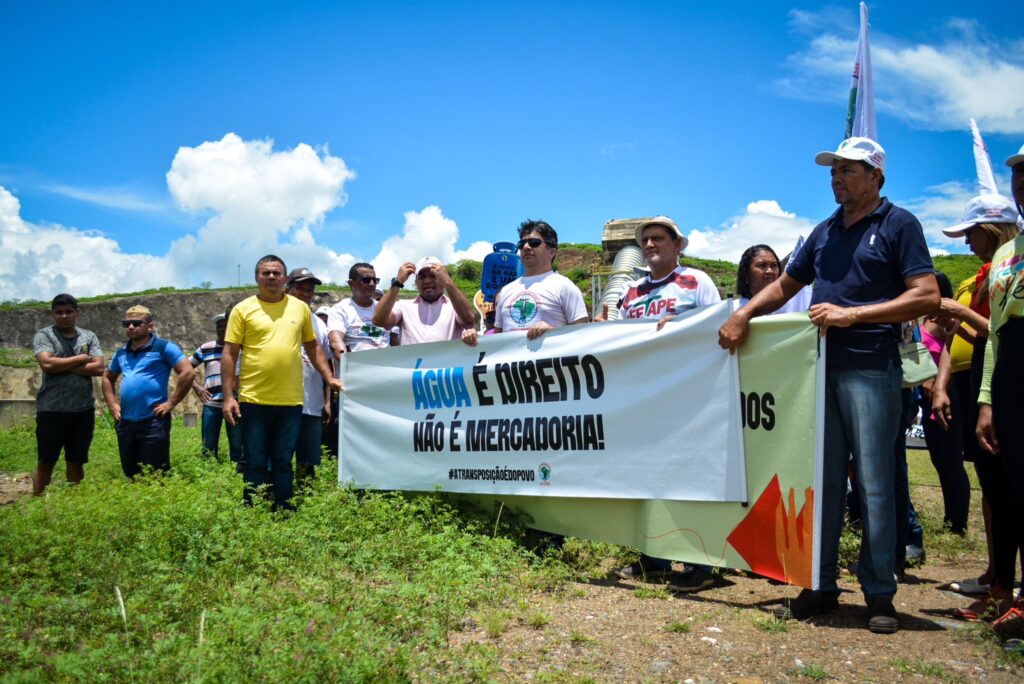
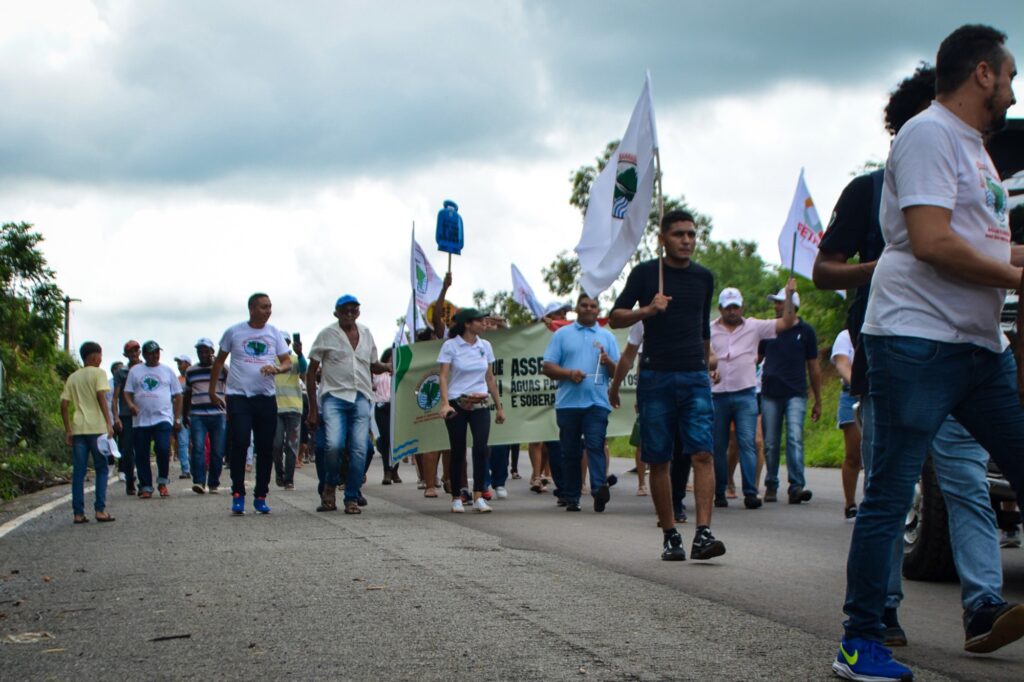
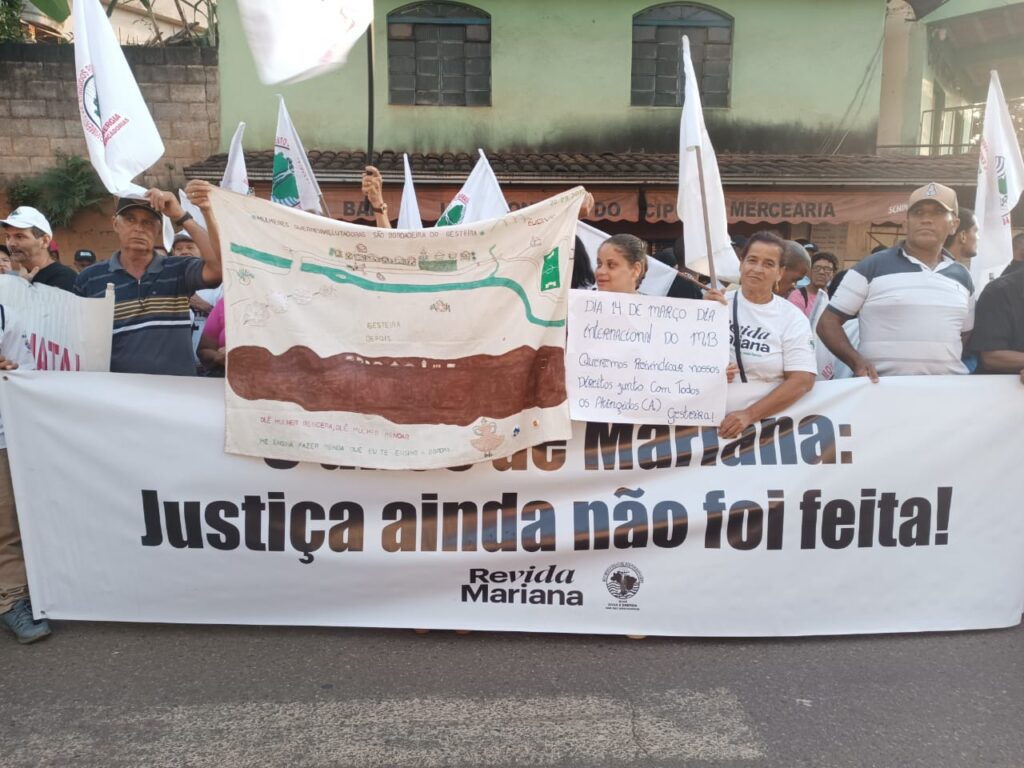
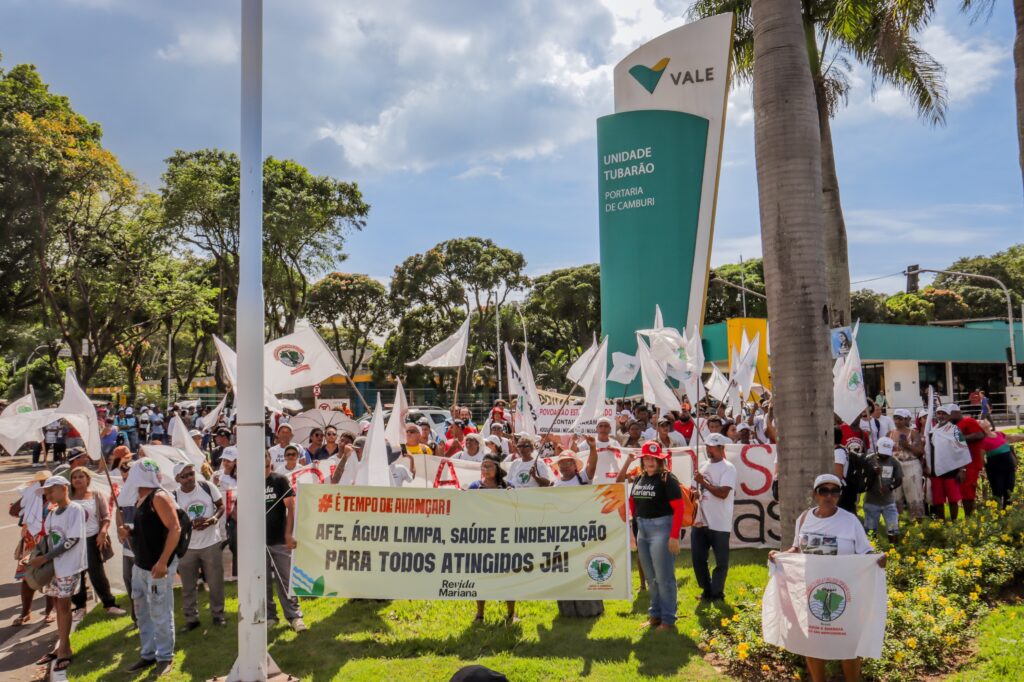
11) Rights of the River Ethiope | Nigeria
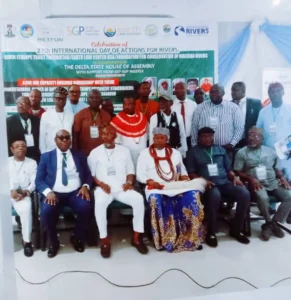
River Ethiope Trust Foundation, Earth Law Centre USA and Foundation for Conservation of Nigerian Rivers in collaboration with the Delta State House of Assembly with support from GEF-SGP Nigeria, organized a one-day stakeholders capacity building workshop to raise awareness on the importance of rivers and advocate for the protection of the rights of River Ethiope Basin.
The one-day capacity-building workshop with the theme: “Understanding The Rights Of Nature For River Ethiope Catchment Stakeholders: Towards Recognition Of River Ethiope As A Personhood With Legal Rights” was the first in Africa with Delta as the first State to mark the International Day of Actions for Rivers in Nigeria. The event brought together educators, environmentalists, community leaders, lawmakers, scientists, journalists, and others to celebrate the importance of rivers in sustaining ecosystems, biodiversity and human livelihoods. Learn more about the event.
12) Native plantings and water quality events | Canada, Spain, Wales, the U.S. and more
In Gambia, along the Nioro River, community members volunteered for an educational hike and river cleanup.
In Canada, Toronto Metropolitan University PhD students from the Urban Water Research Centre led an outdoor field trip, teaching undergraduate and graduate students how to safely and properly conduct stream monitoring (e.g., measurement of water quality parameters such as pH, conductivity; collection of grab samples; benthic macroinvertebrate community characterization) in an urban stream (Yellow Creek) in Toronto.
In Wales, many wonderful volunteers worked to help protect and restore the rivers of West Wales. Photo is of the volunteers who were out planting trees along the Melindwr, Ceredigion.
In the United States, multiple communities organized educational kayaking and sailing events, river restoration efforts and water quality and river clean-ups.
In Spain, the Spanish Federation of Fishing and Casting hosted river cleanups across Spain in the towns of Sort, Esparreguera, Osona, Calafell and Vilaller. With sunny weather, participants collected 124.5 kg of garbage in part of the paths of the “Pedrera de l’Escarnosa”.
They also informed the city council of the existence of black garbage points with collections of uralite plates, construction debris and sanitary ware. Members of the FEHM-Lab Research Group were also out researching freshwater biodiversity.
Activities also happened in the Philippines and Chile.
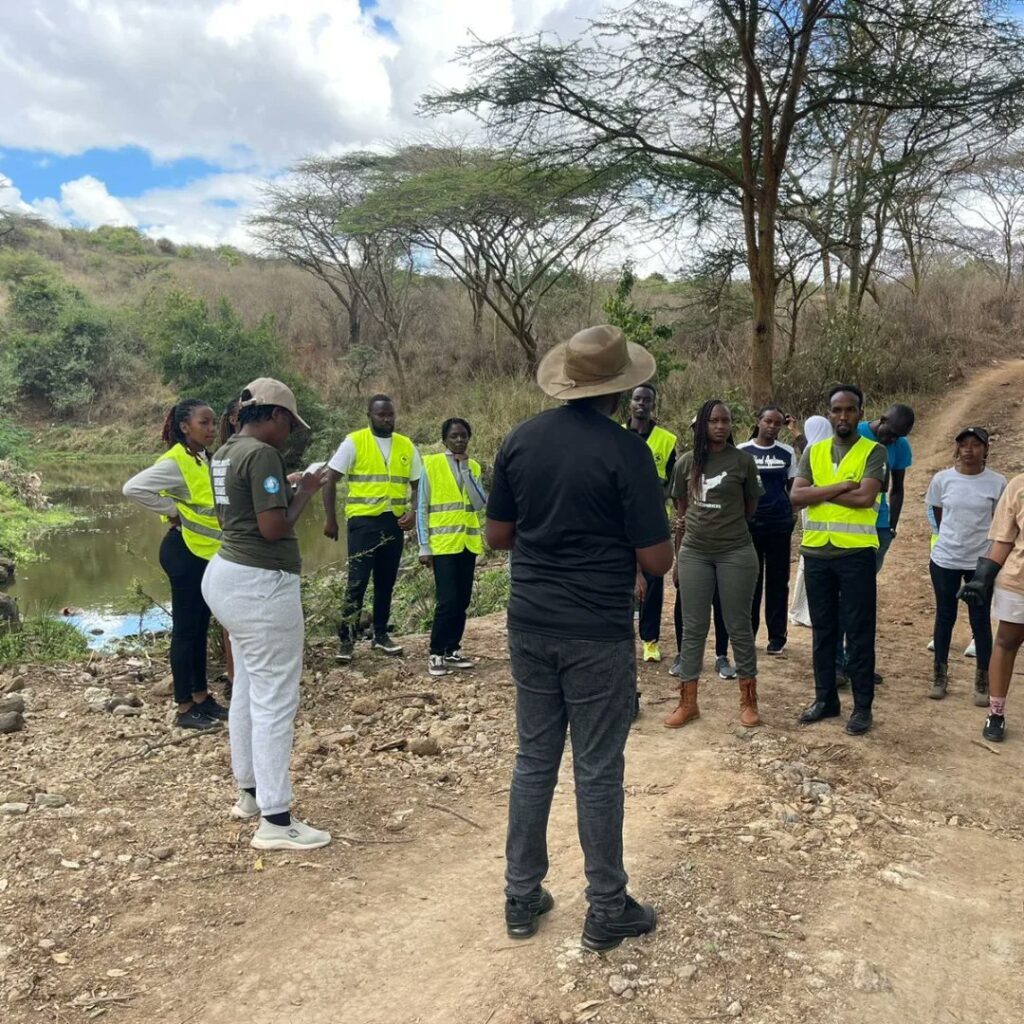
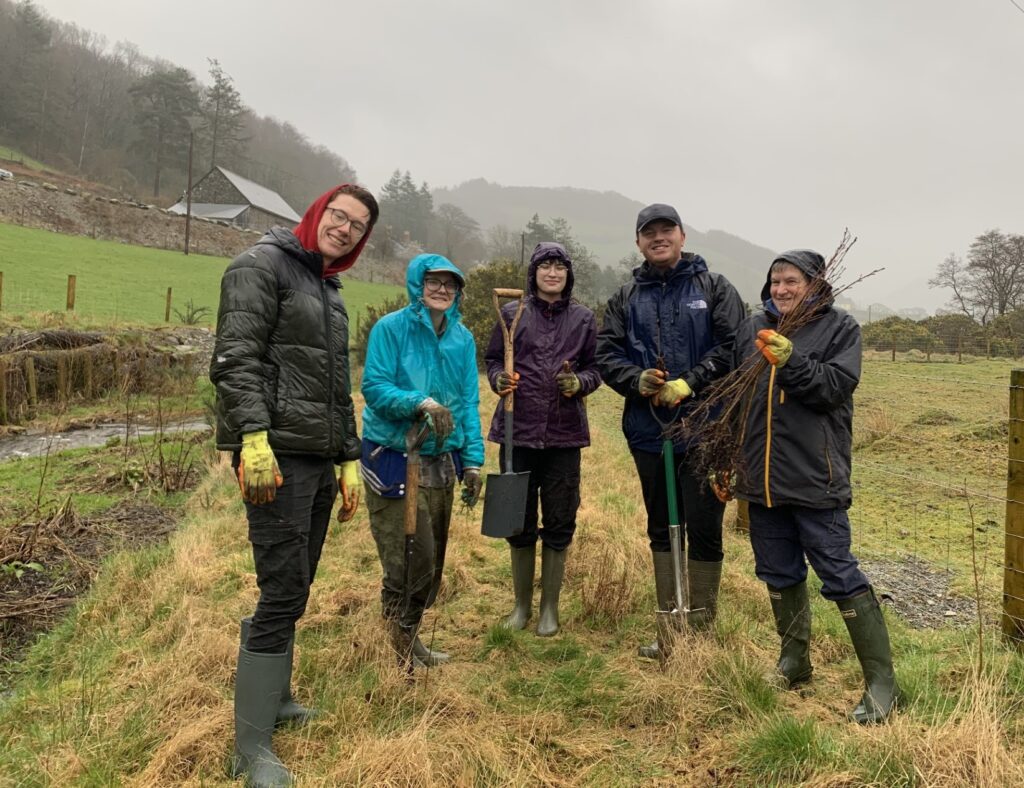
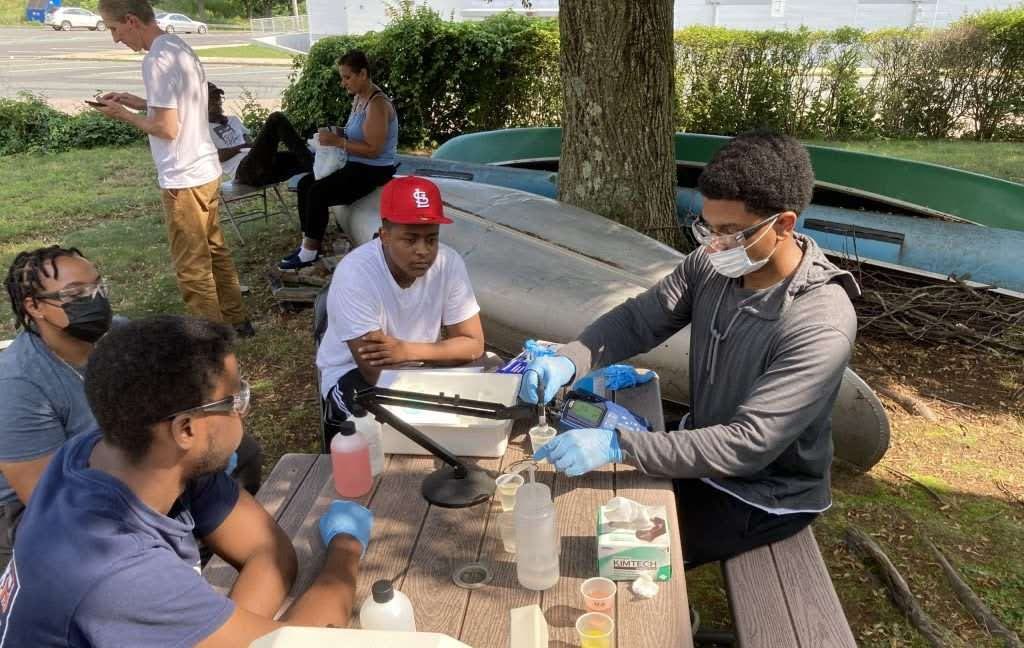
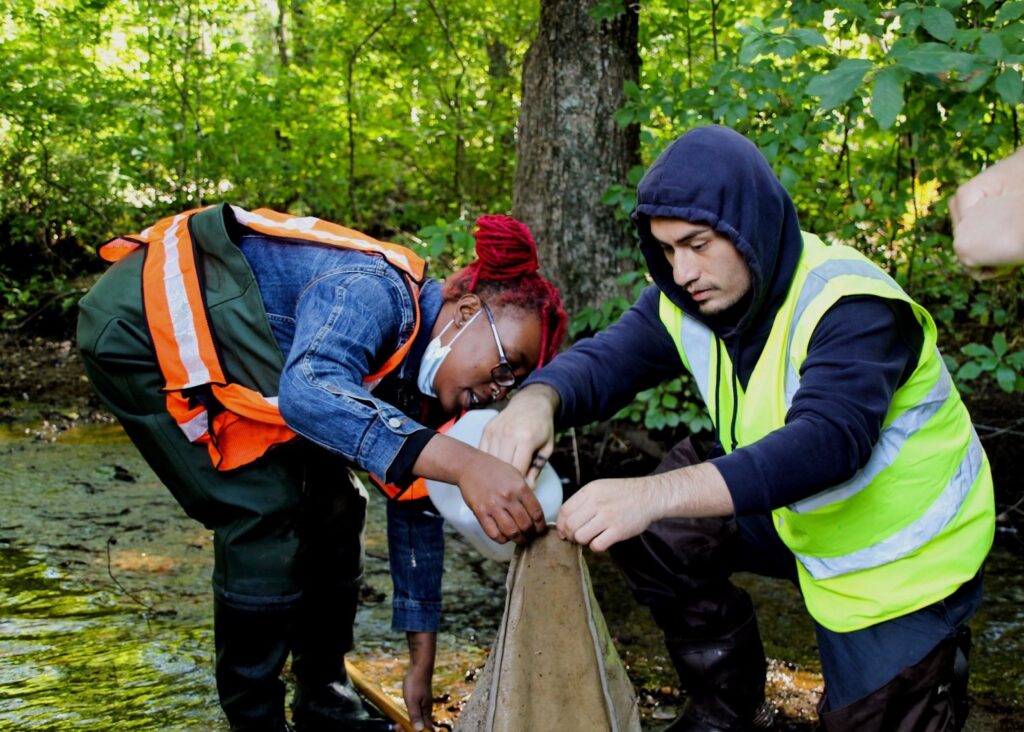
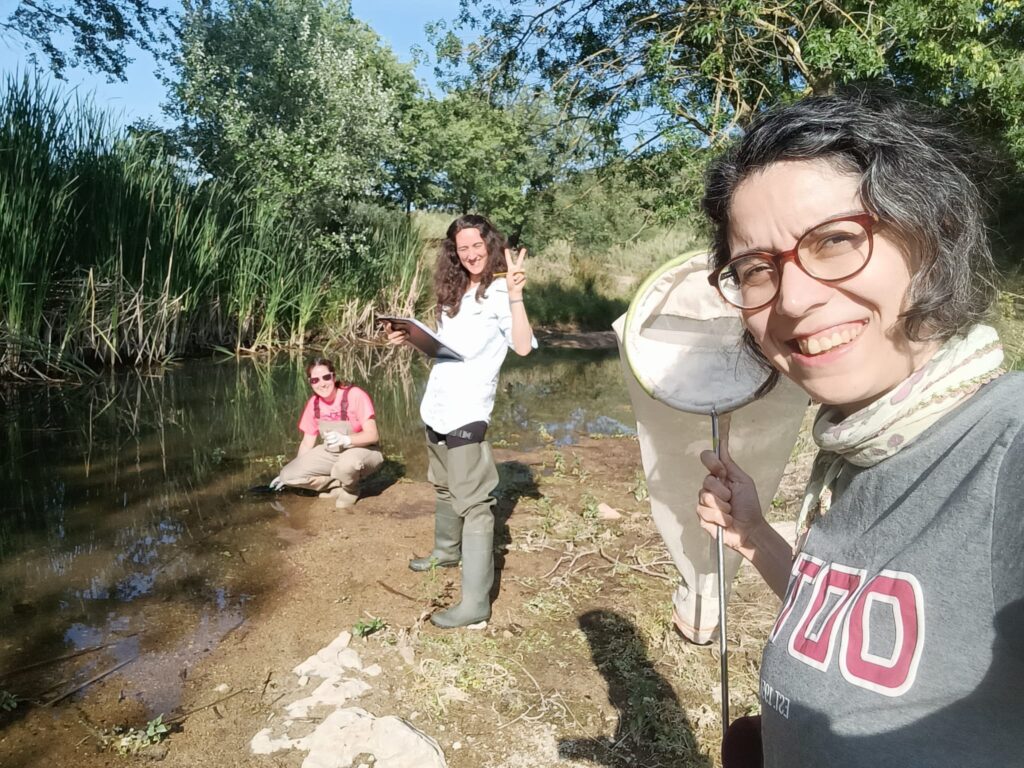
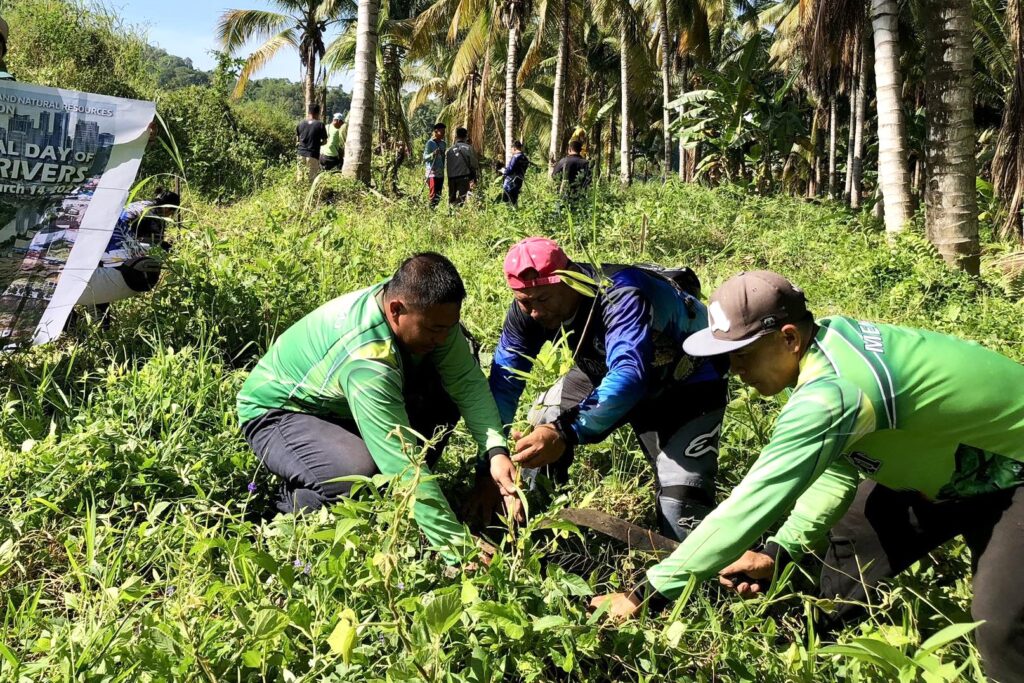
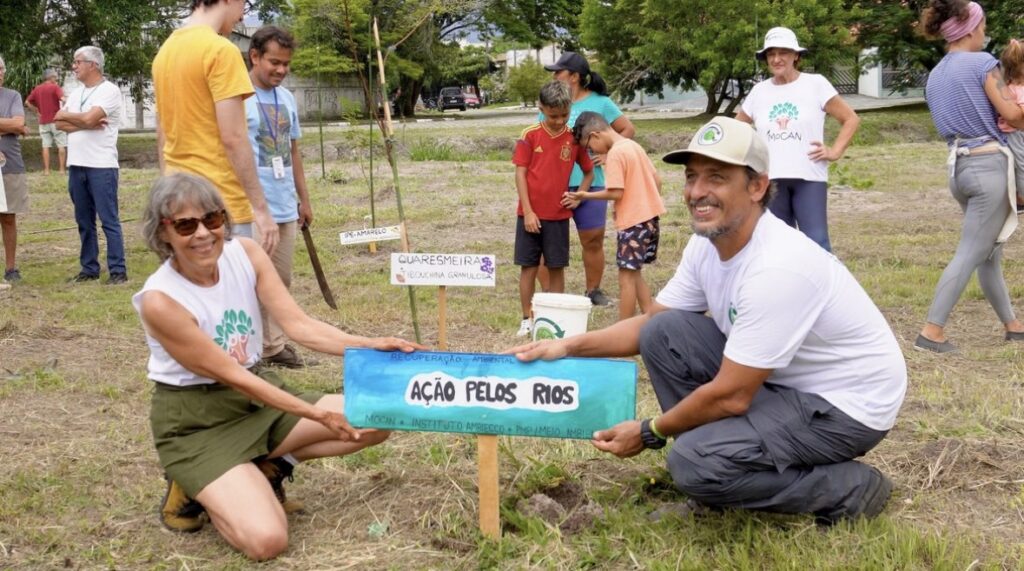
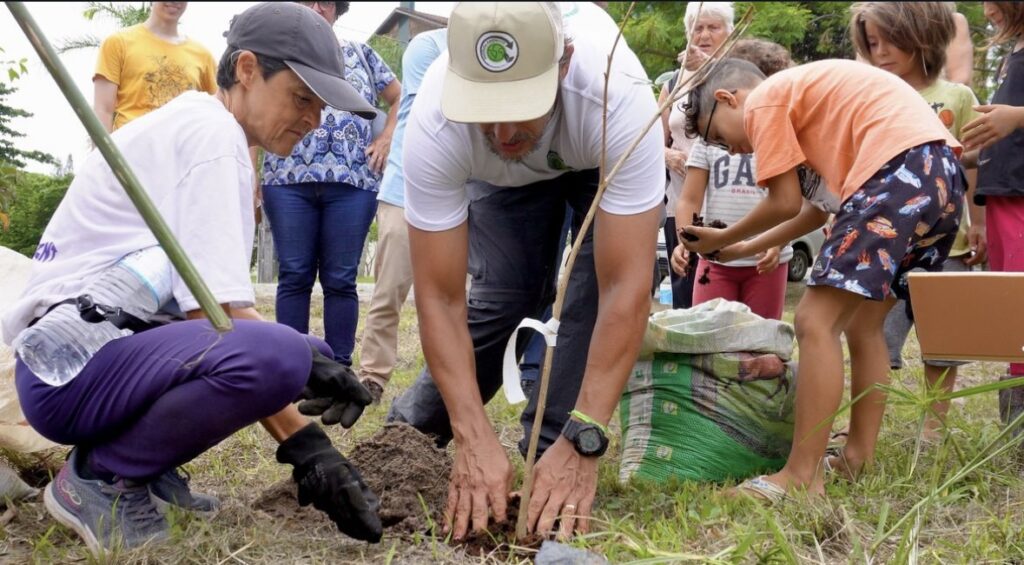



2024 DAY OF ACTION PHOTO ALBUM
We hope you enjoy these highlighted events. To see more, check out the full Flickr album here. If you have photos from your event you would like to add to the album please email dayofaction@internationalrivers.org
Featured photo by Beverly Longid of KATRIBU

